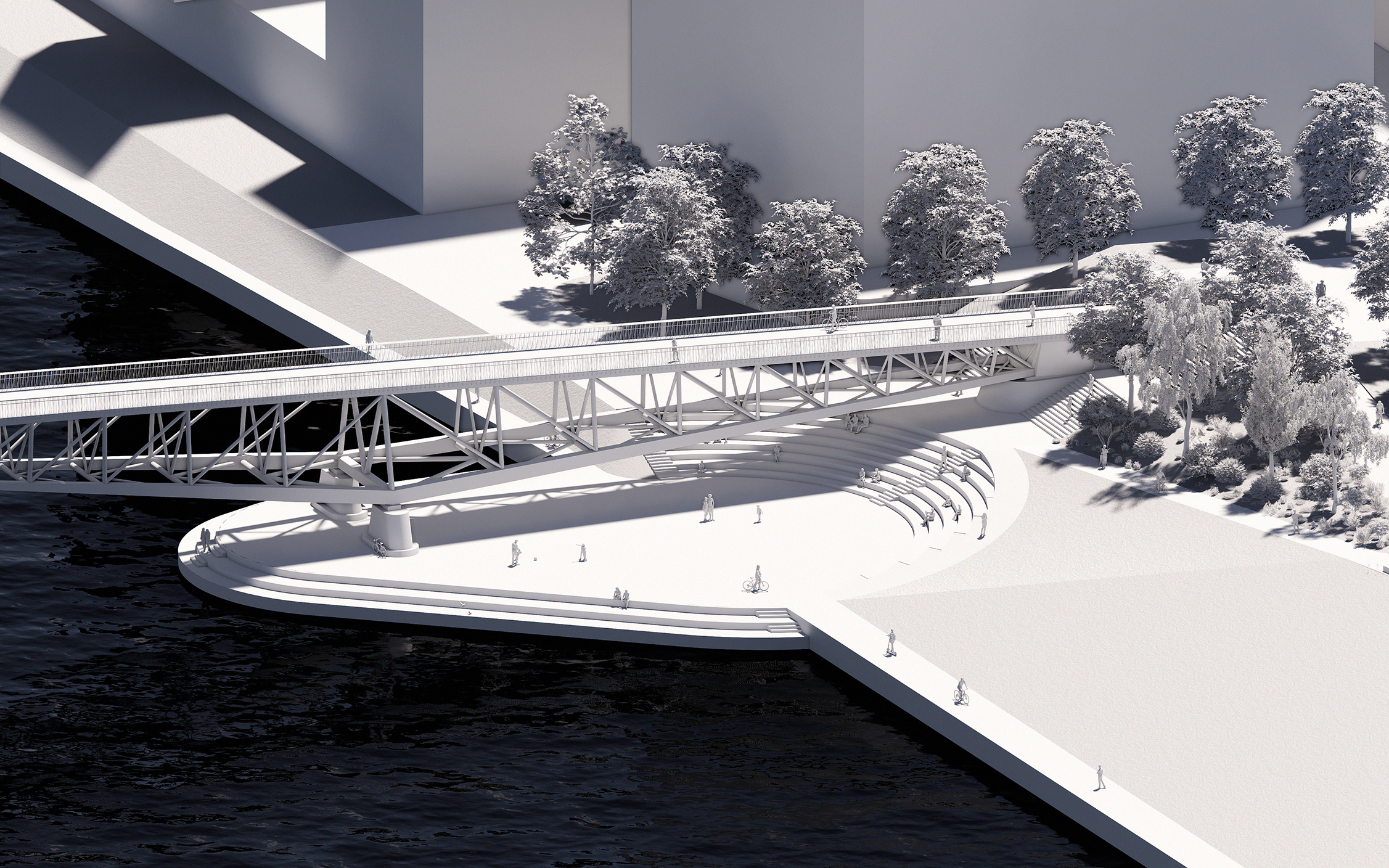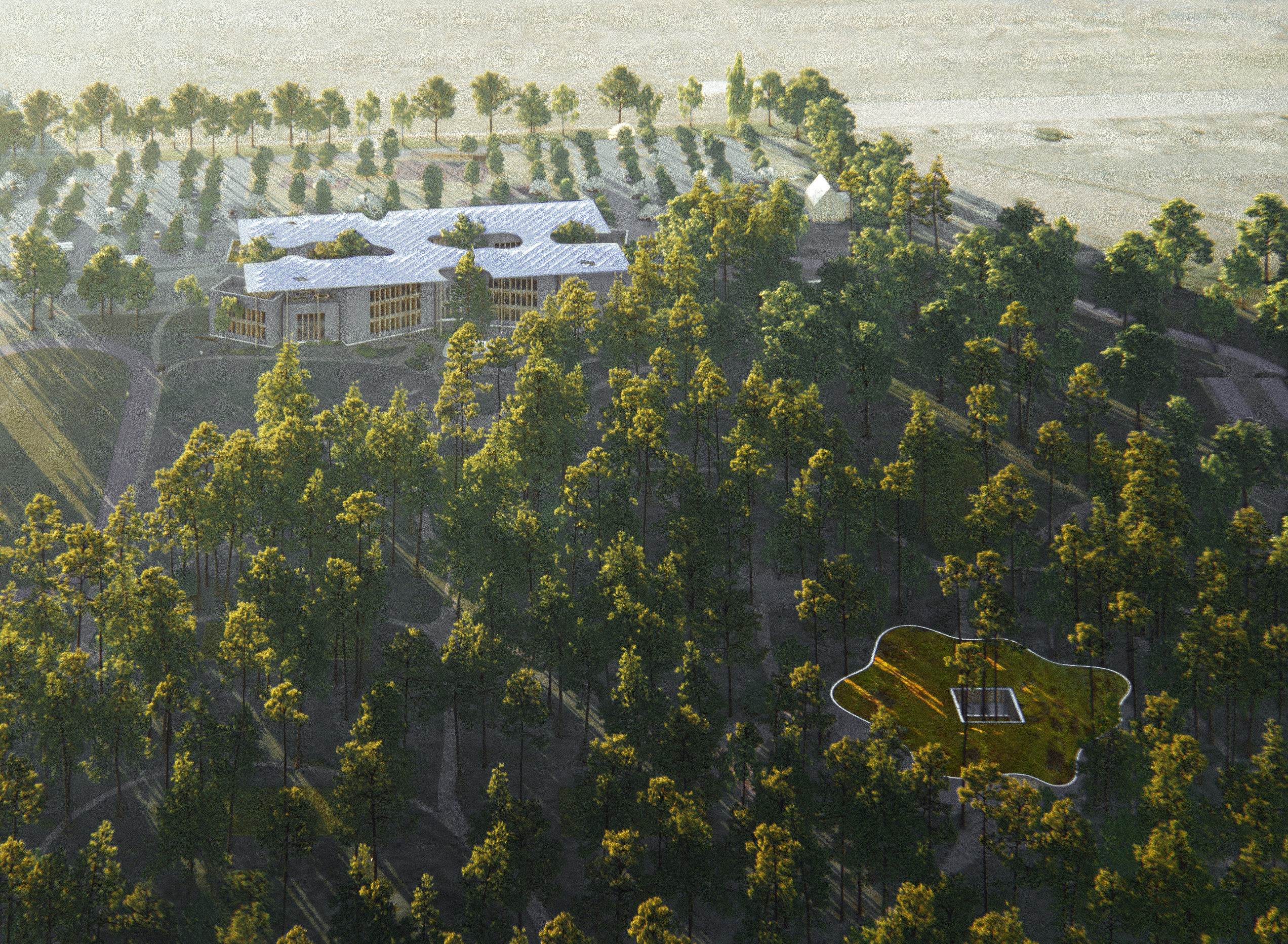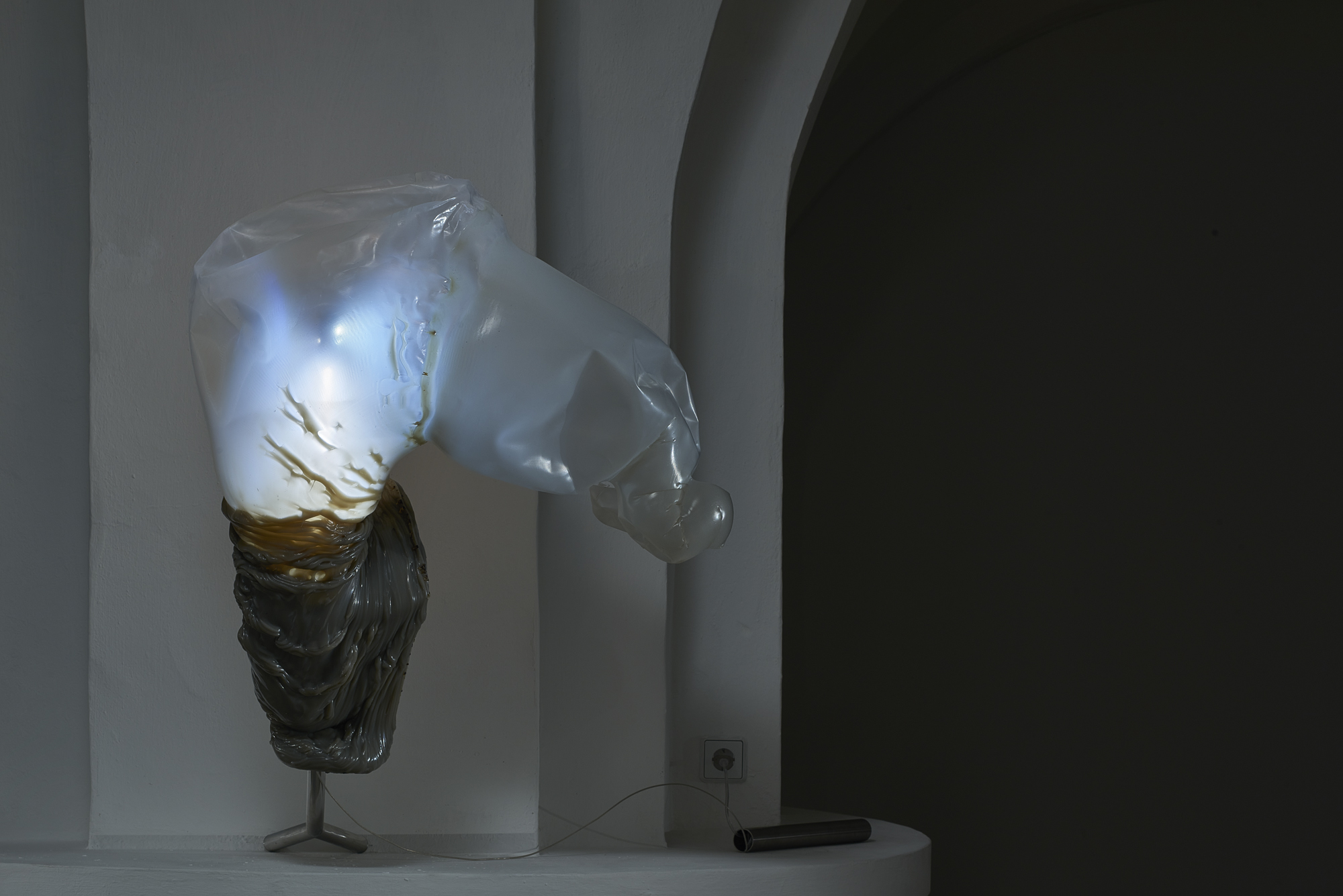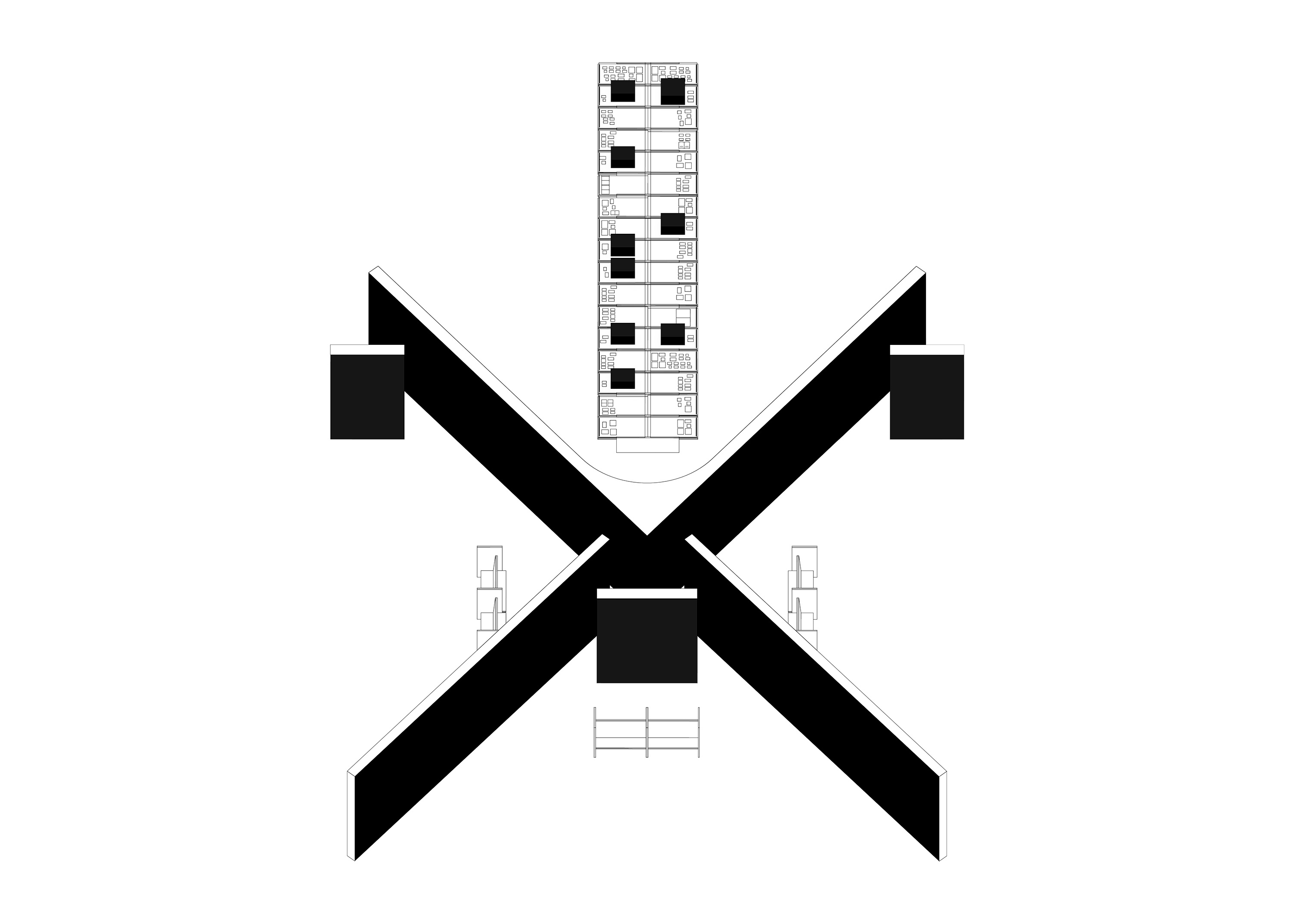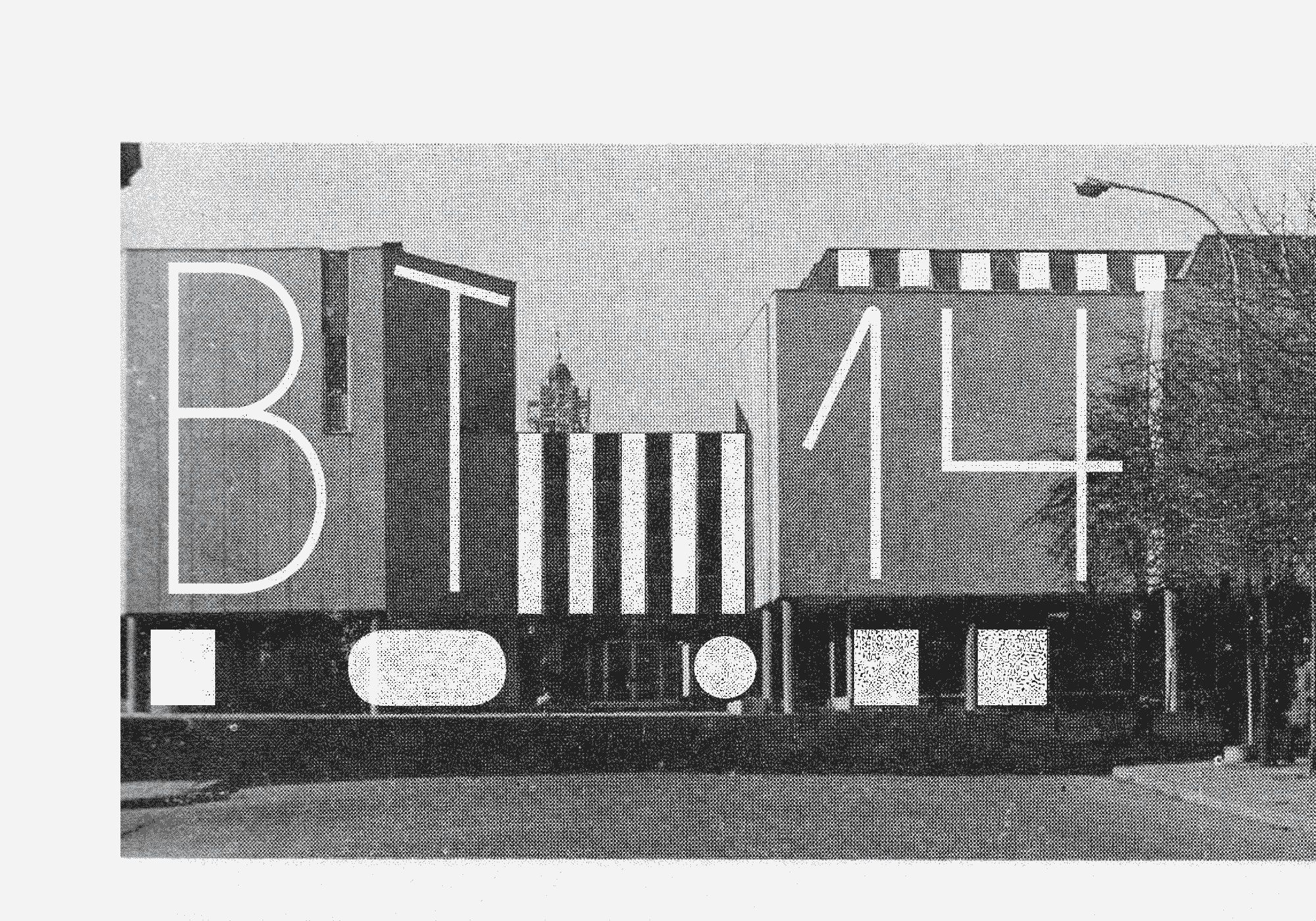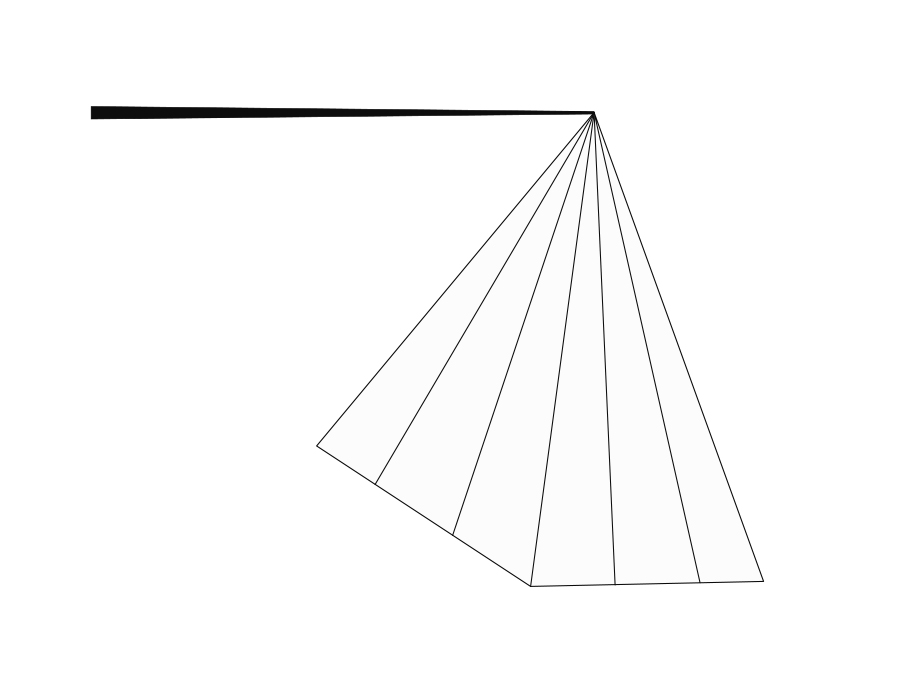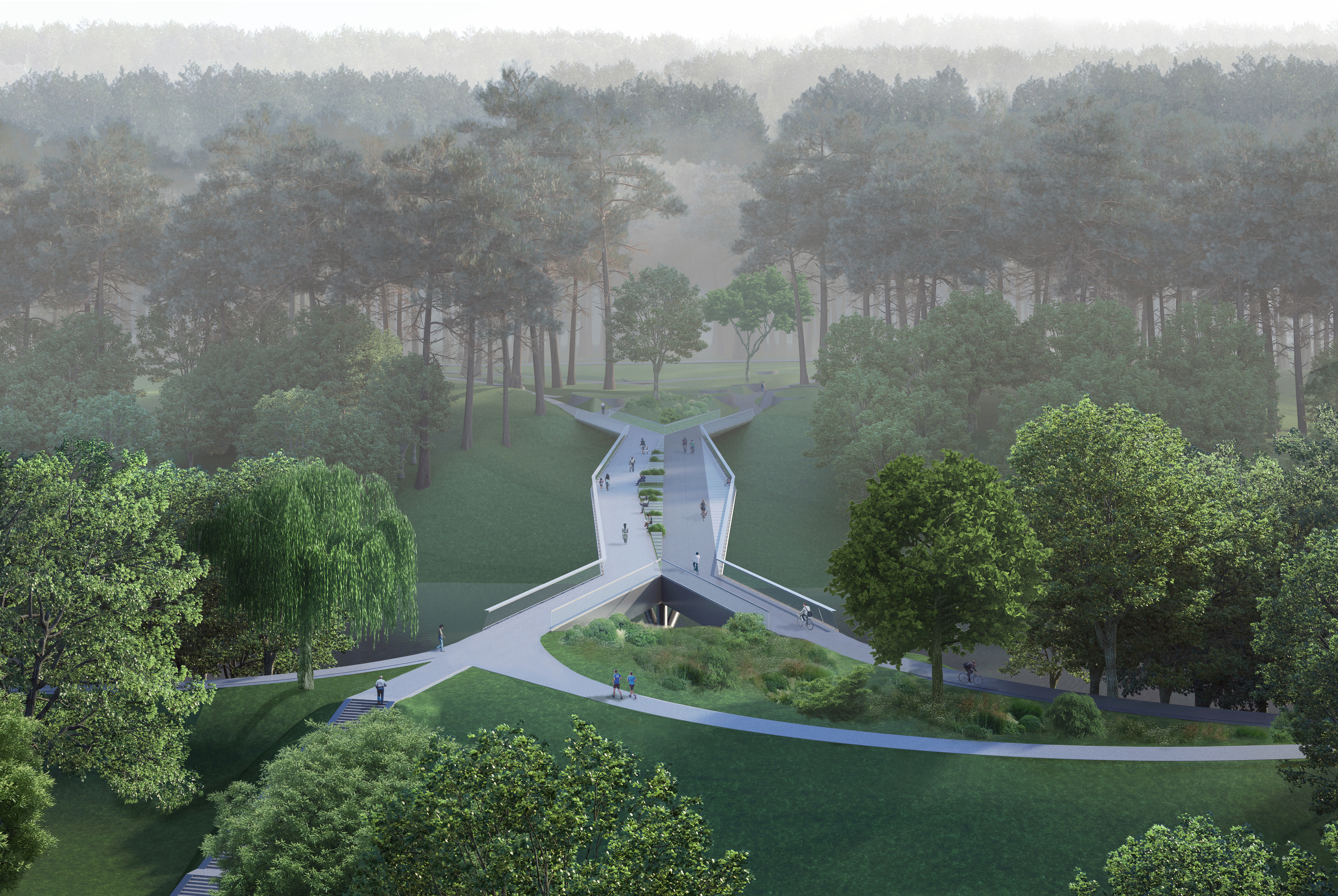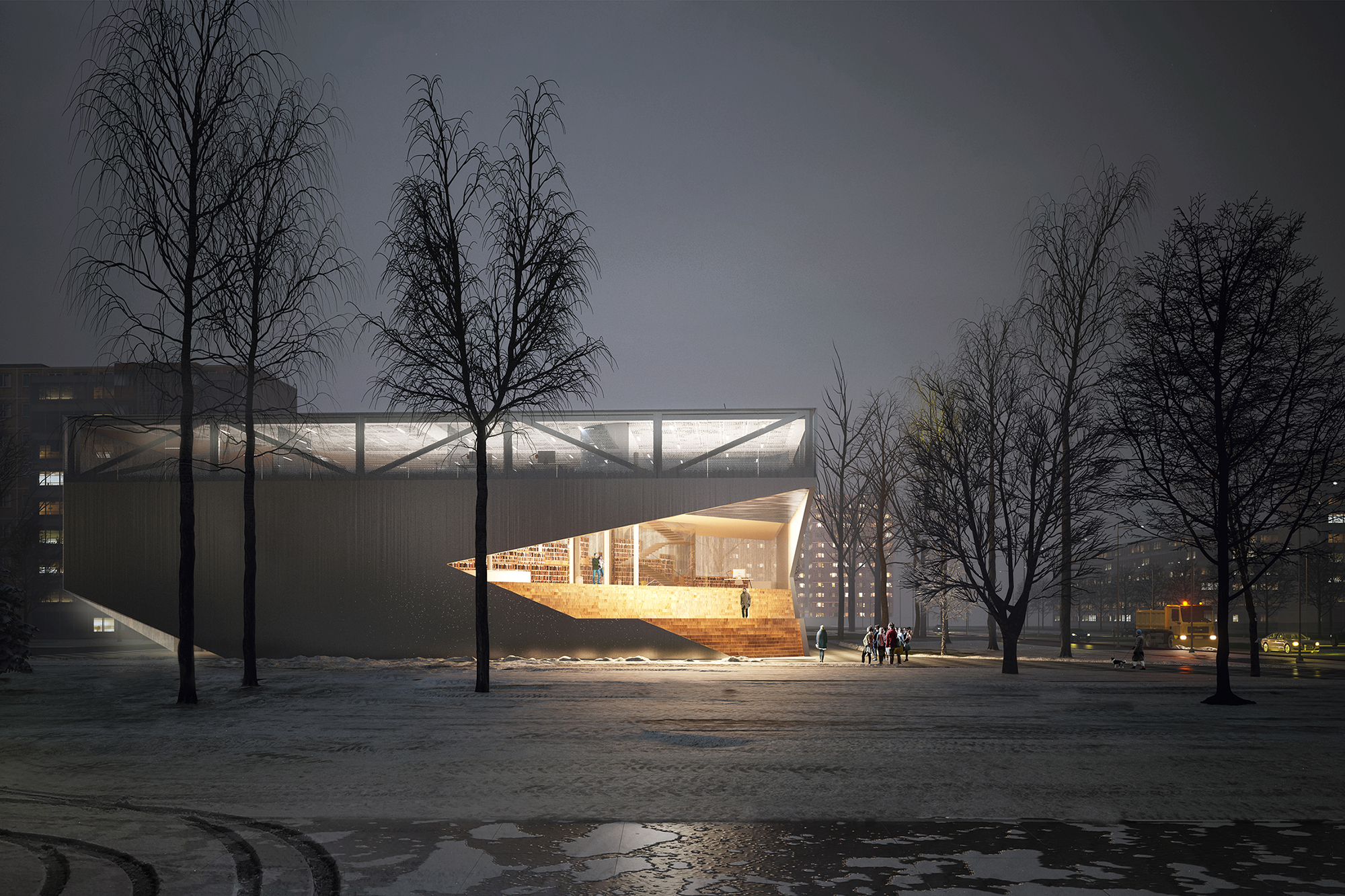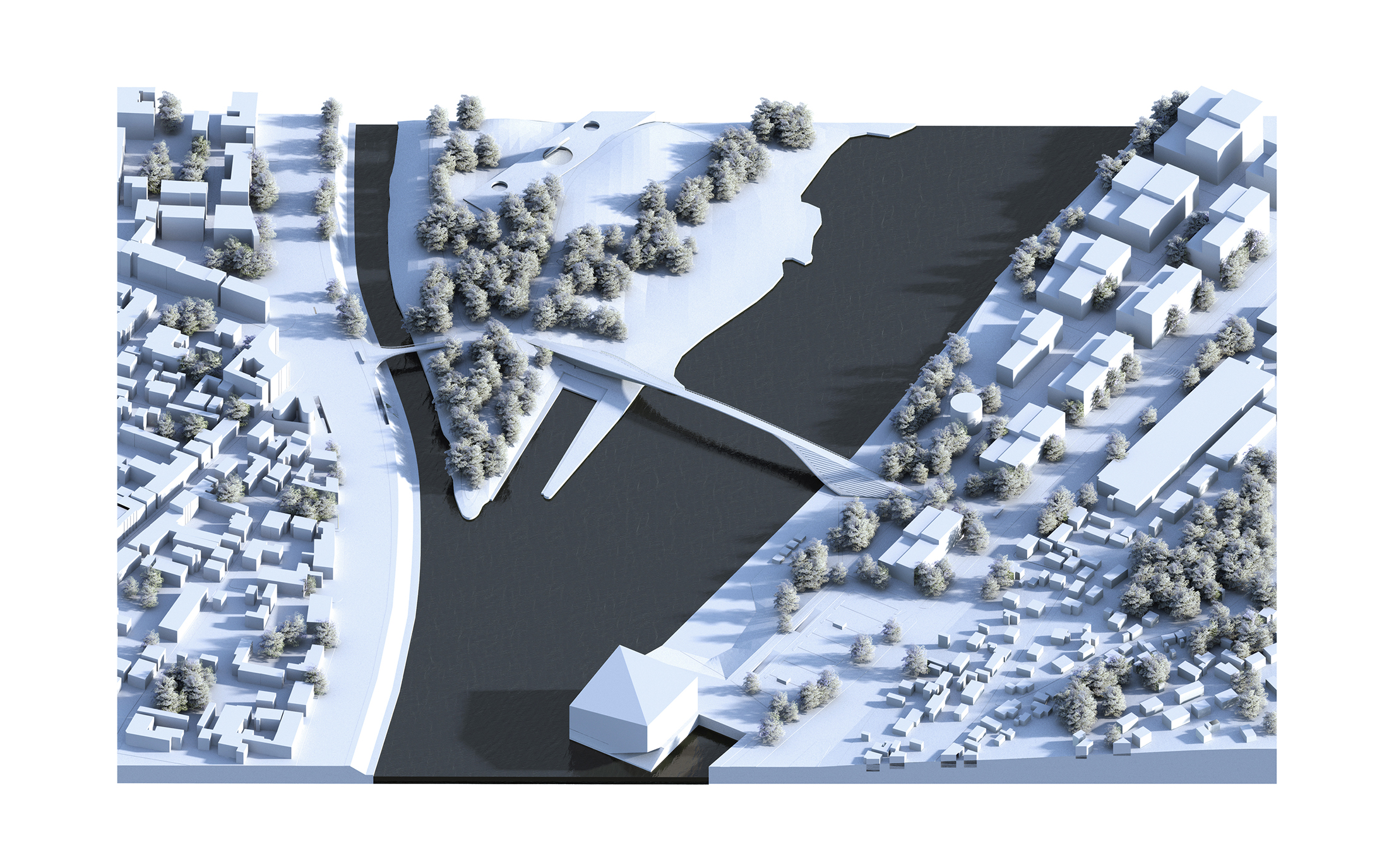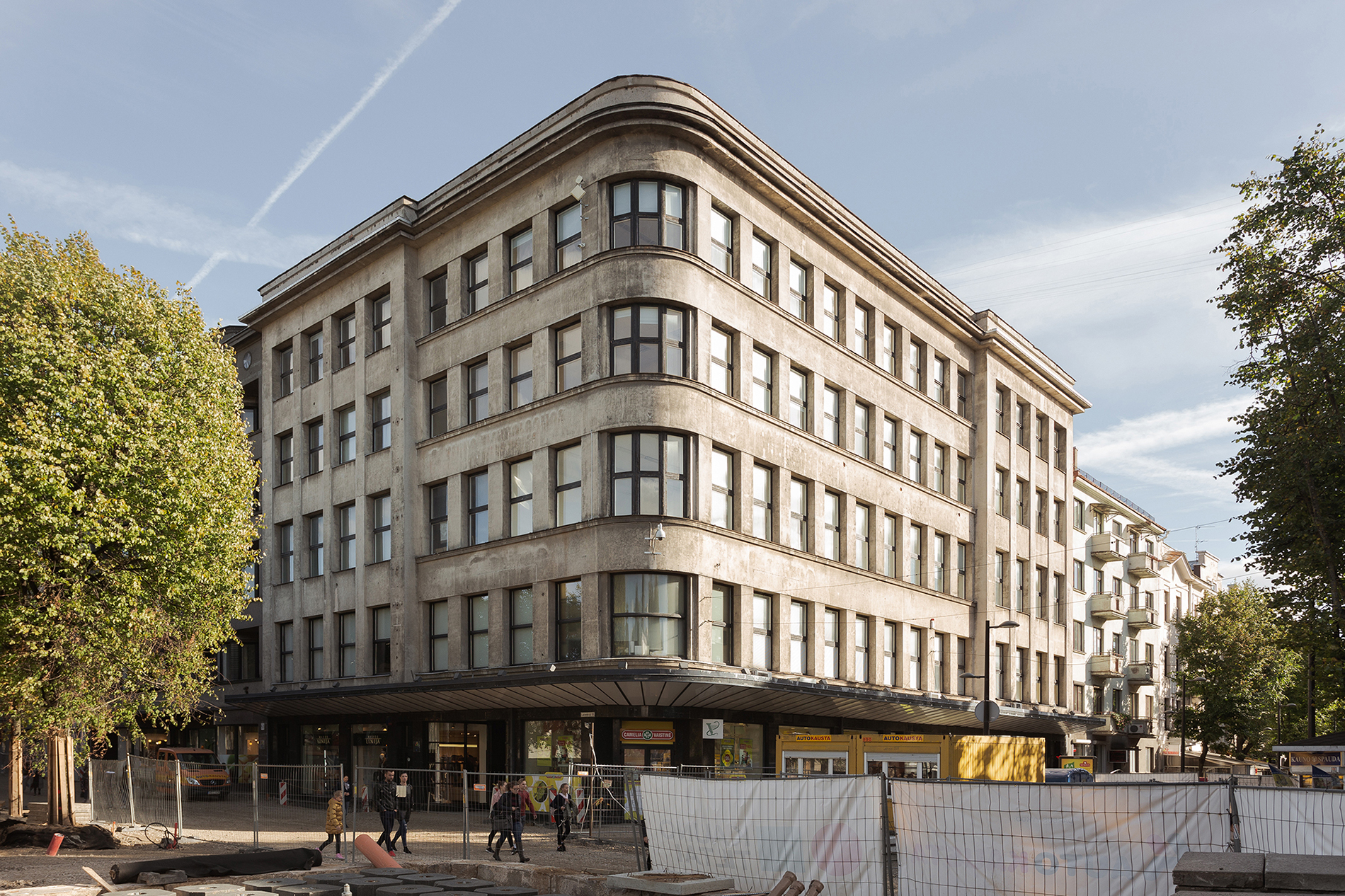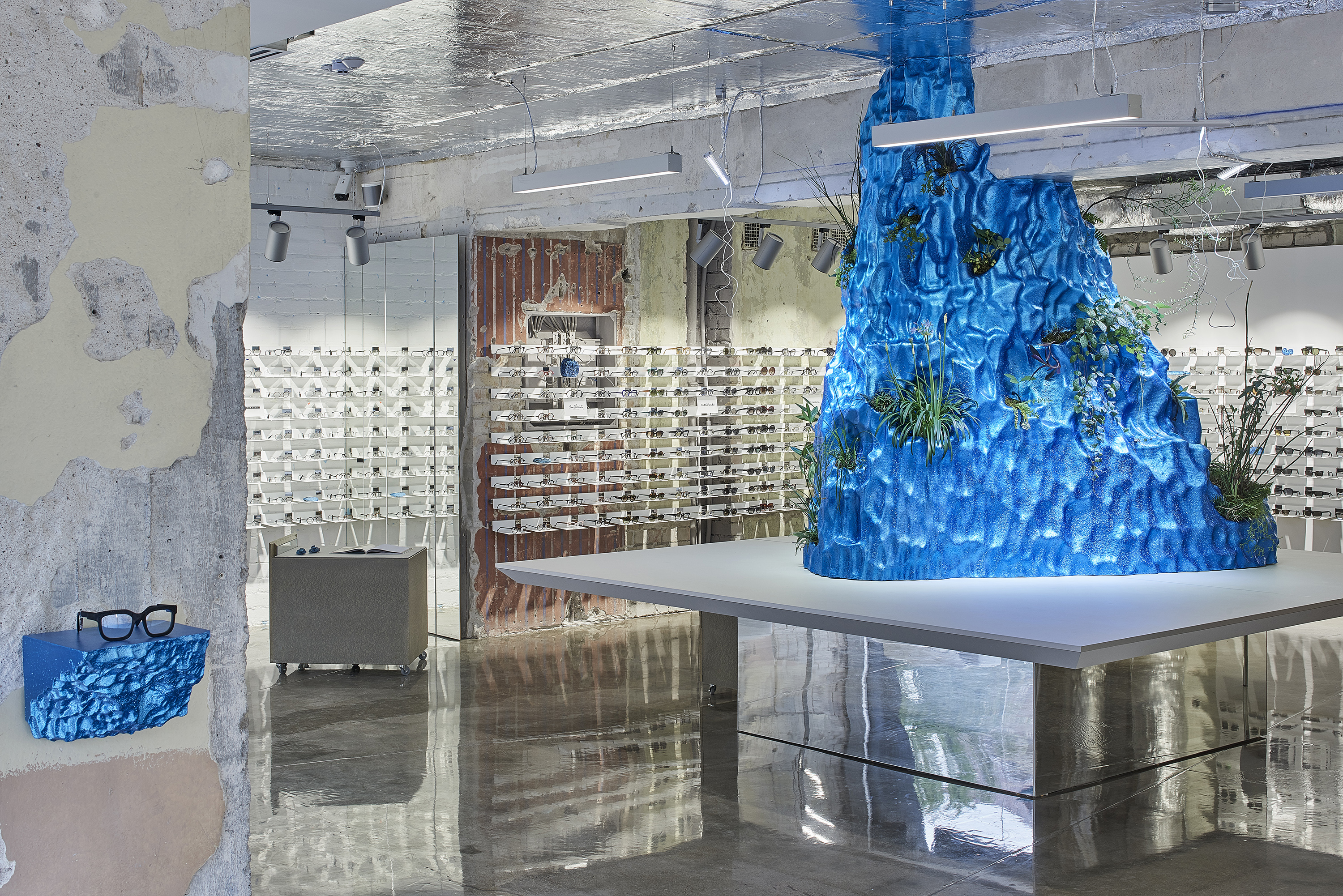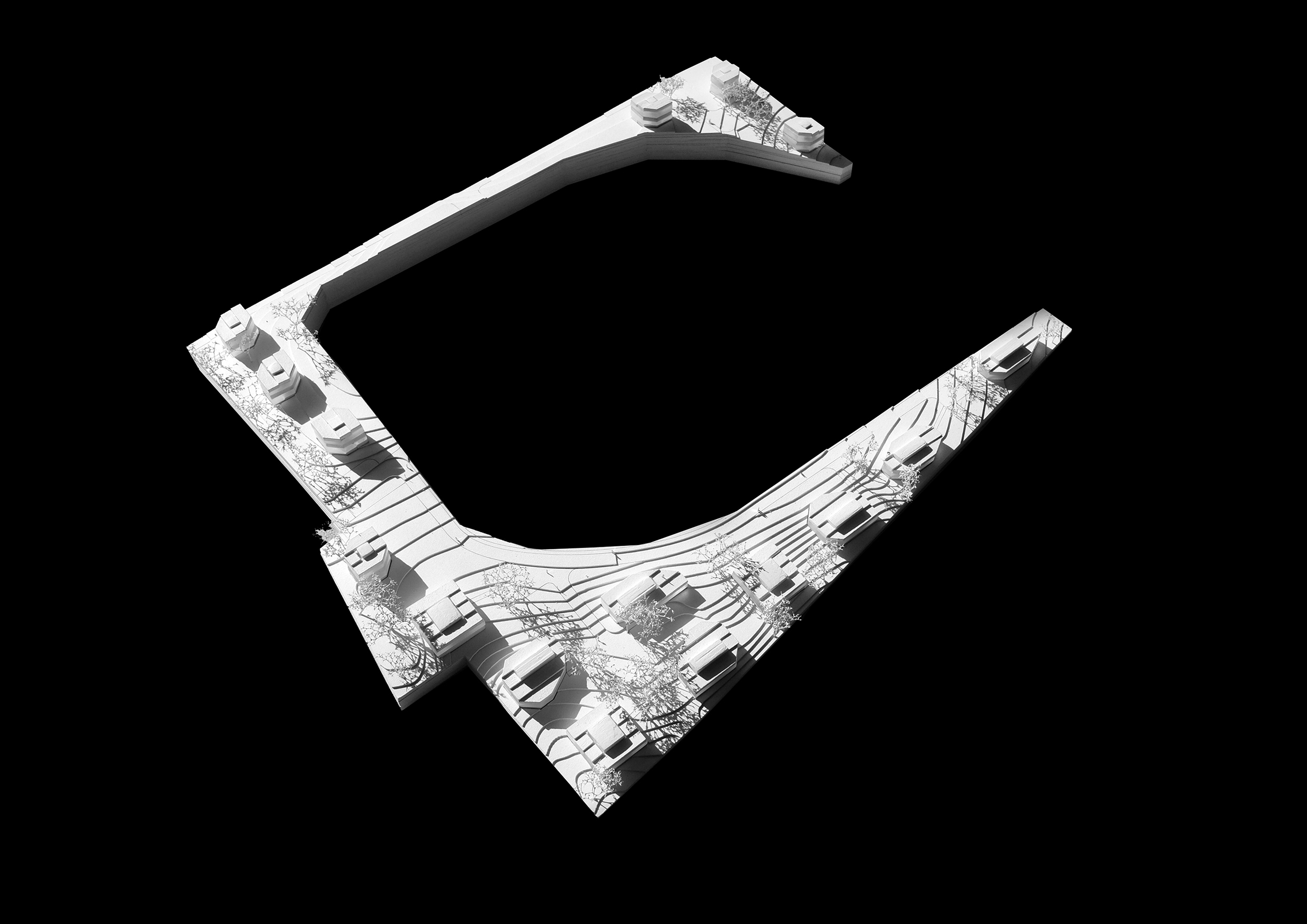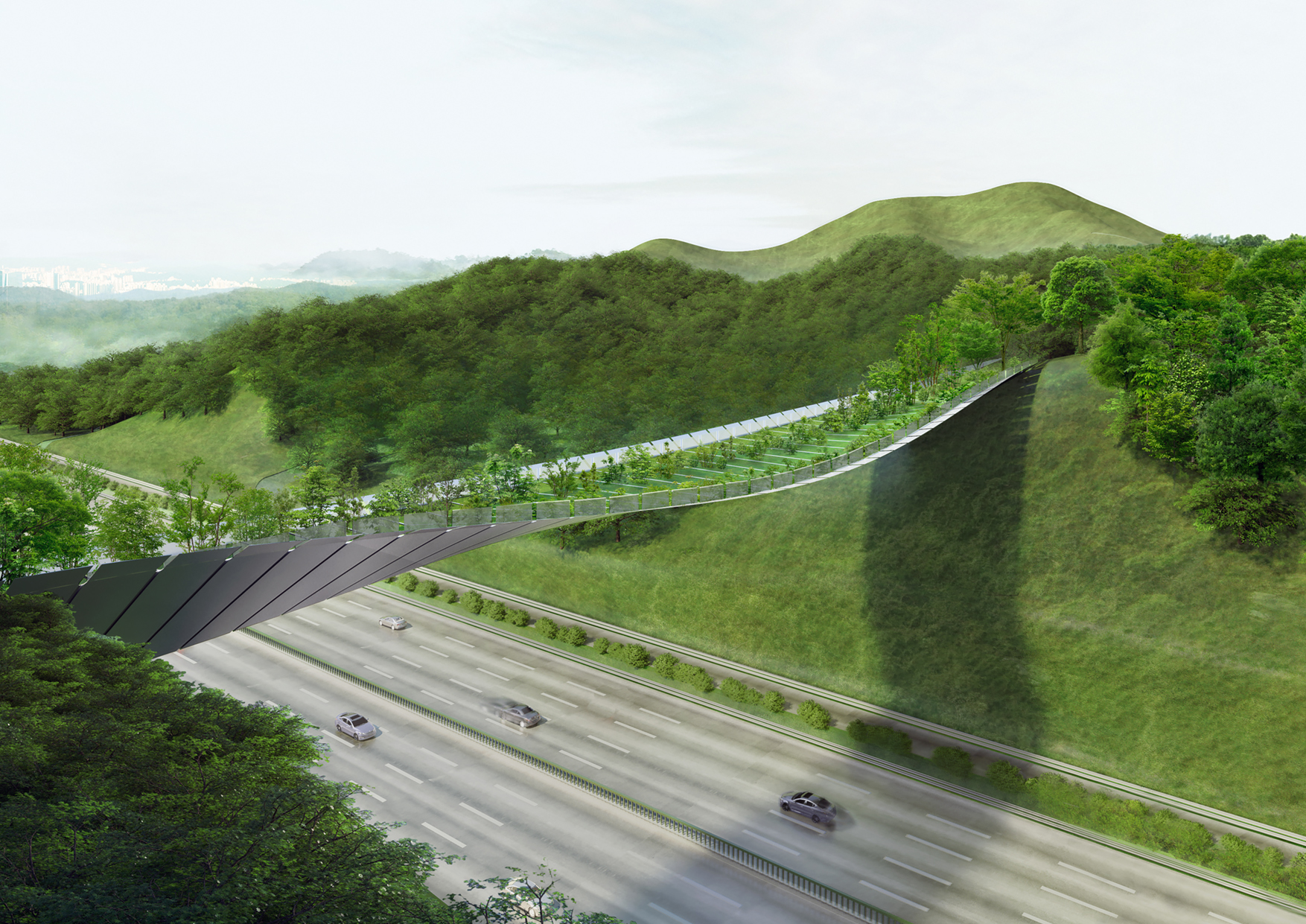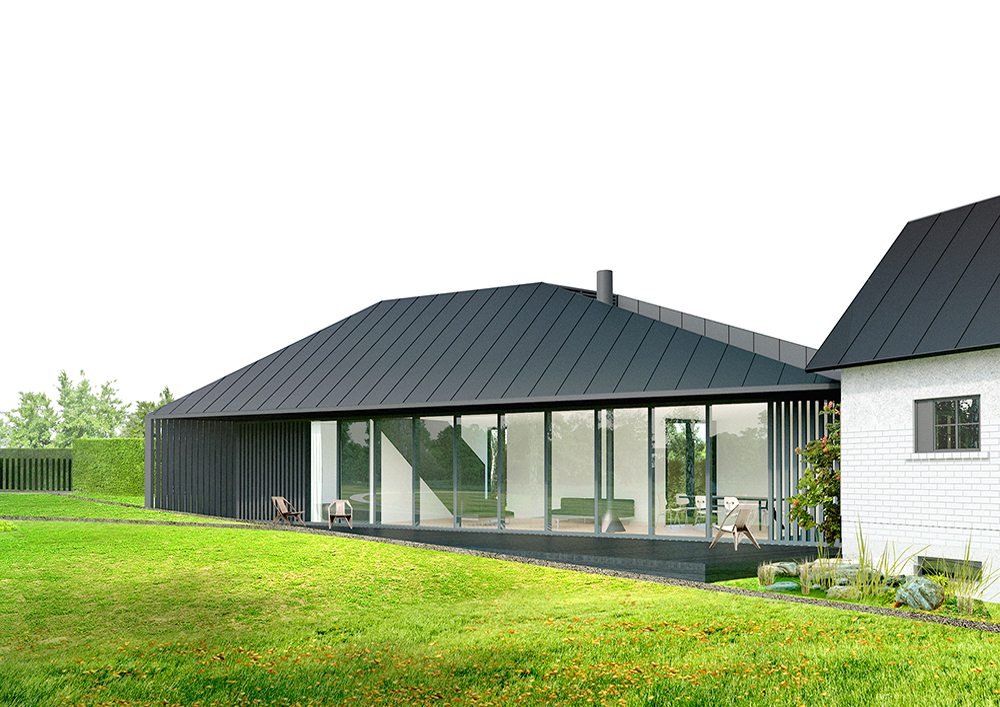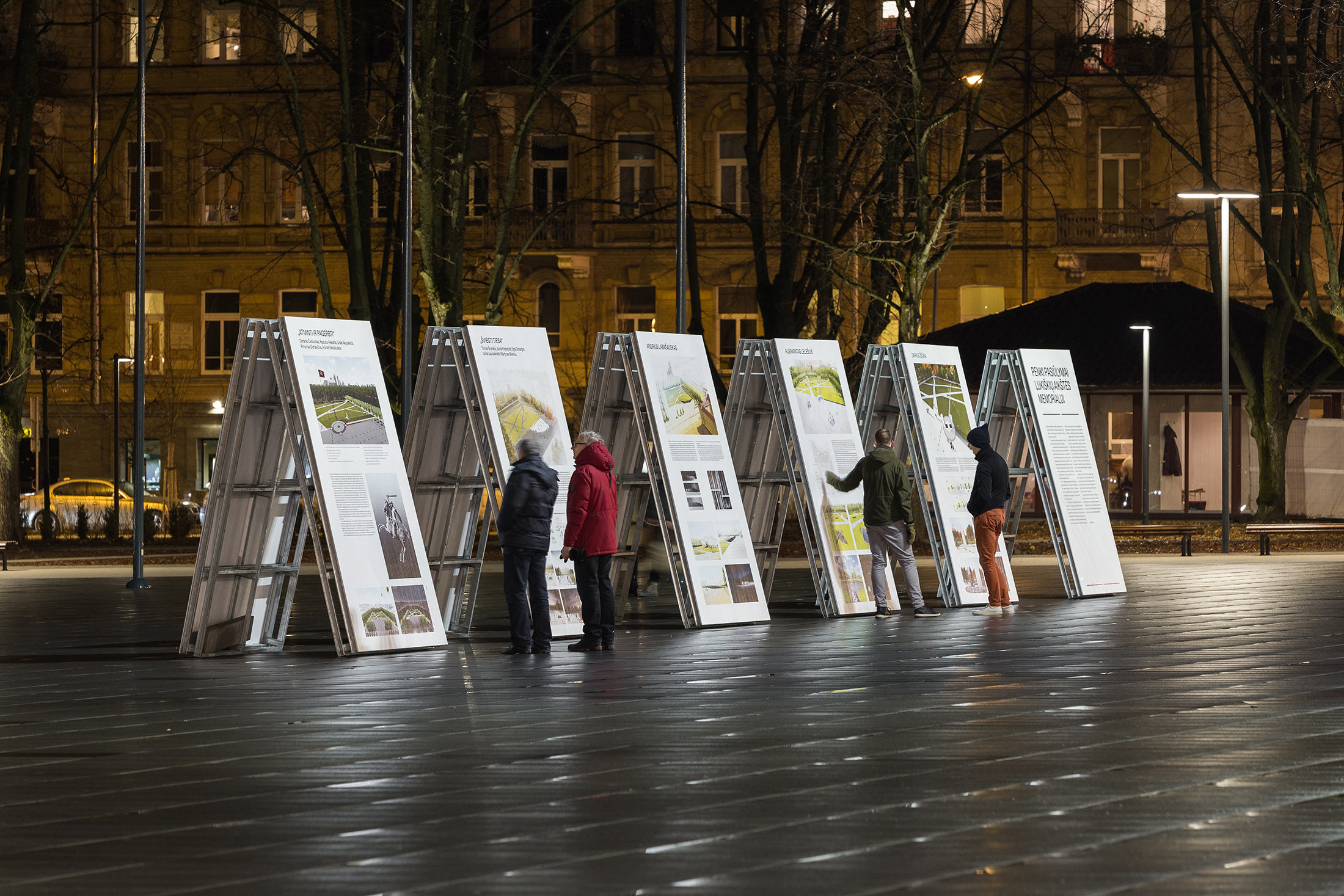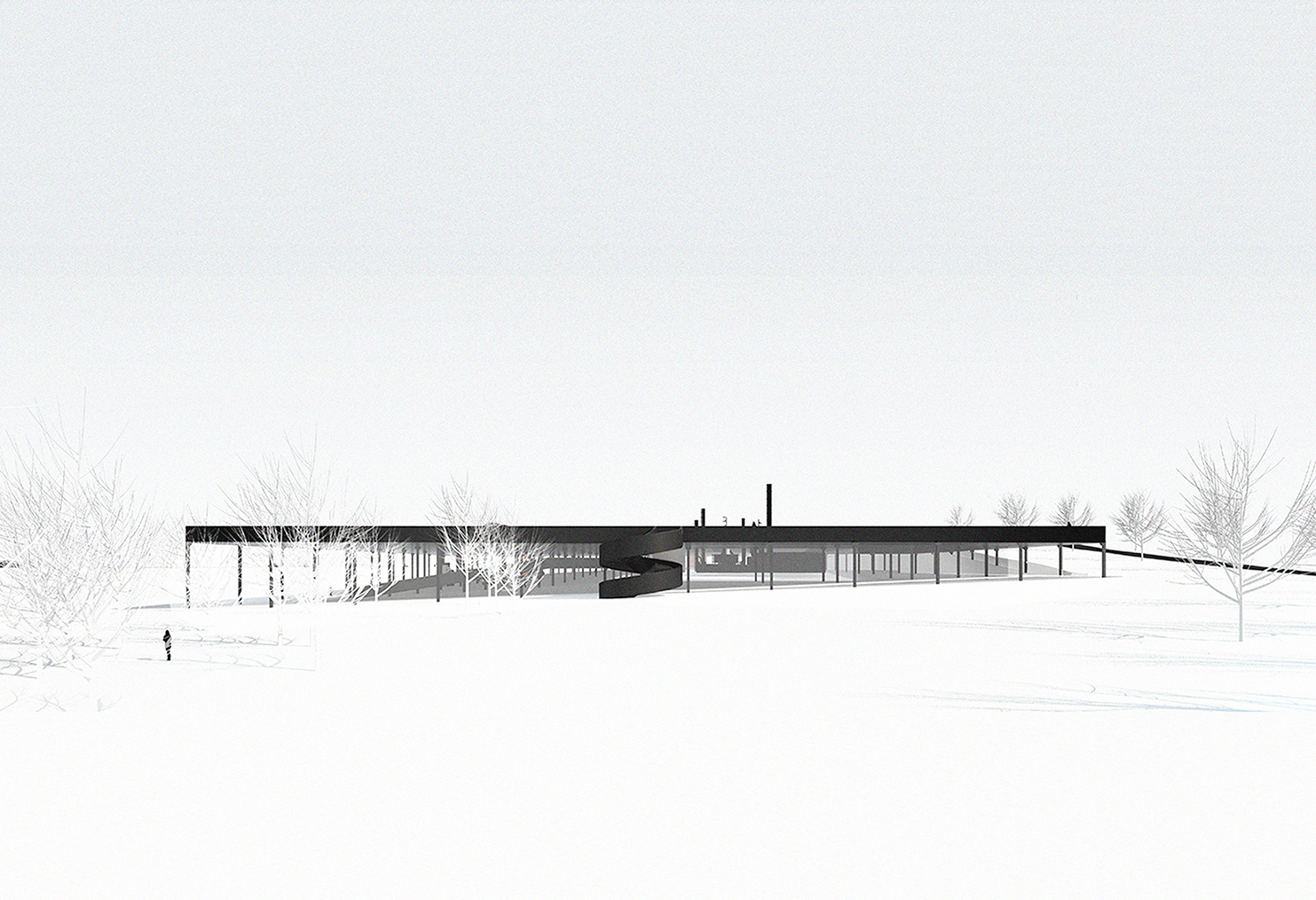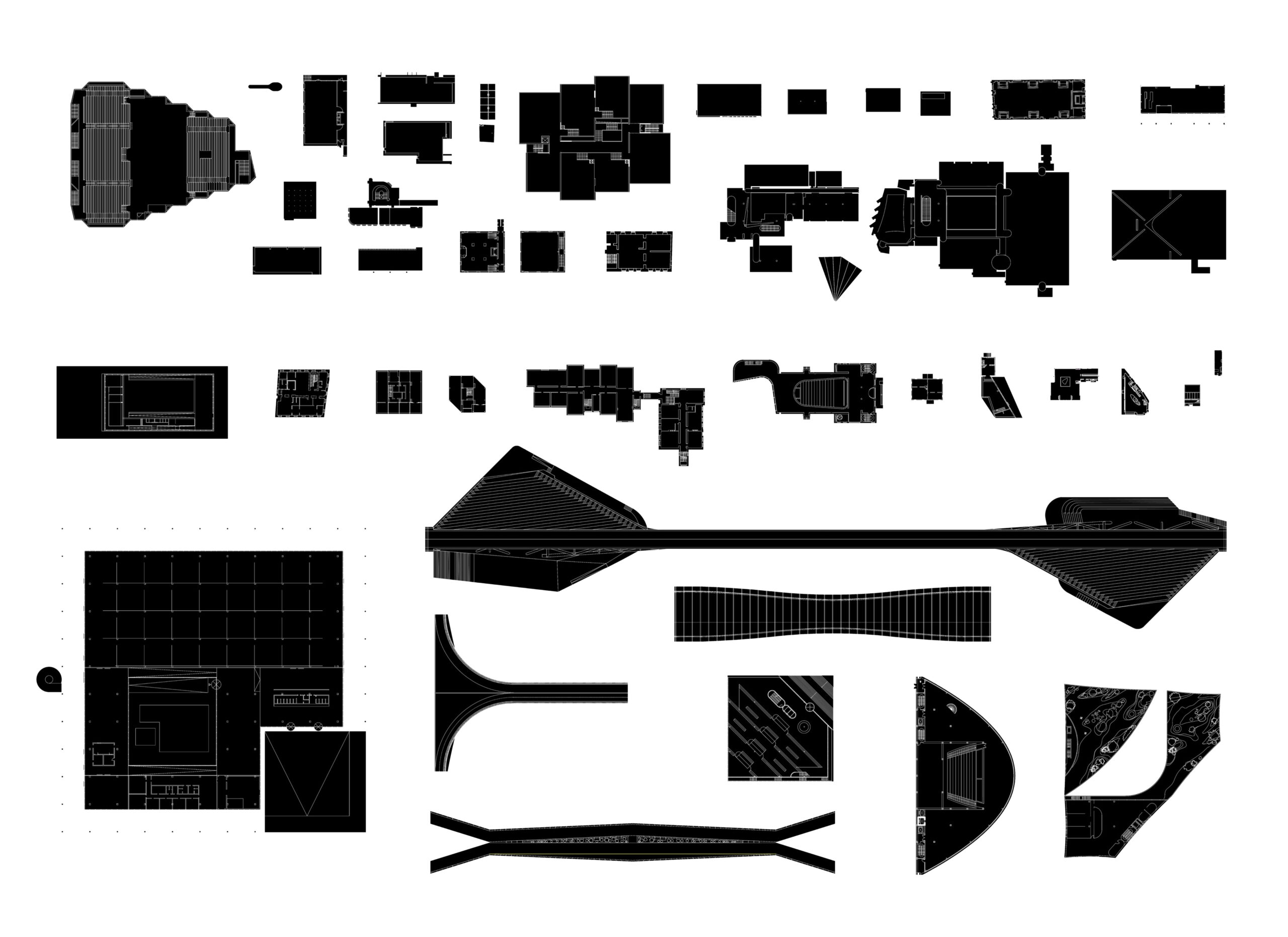P.Išora, I.Ksnelashvili
team: D.Daunys, O.Lozuraitytė, D.Tsanava, N.Maisuradze
Arup, Zabel and Partner
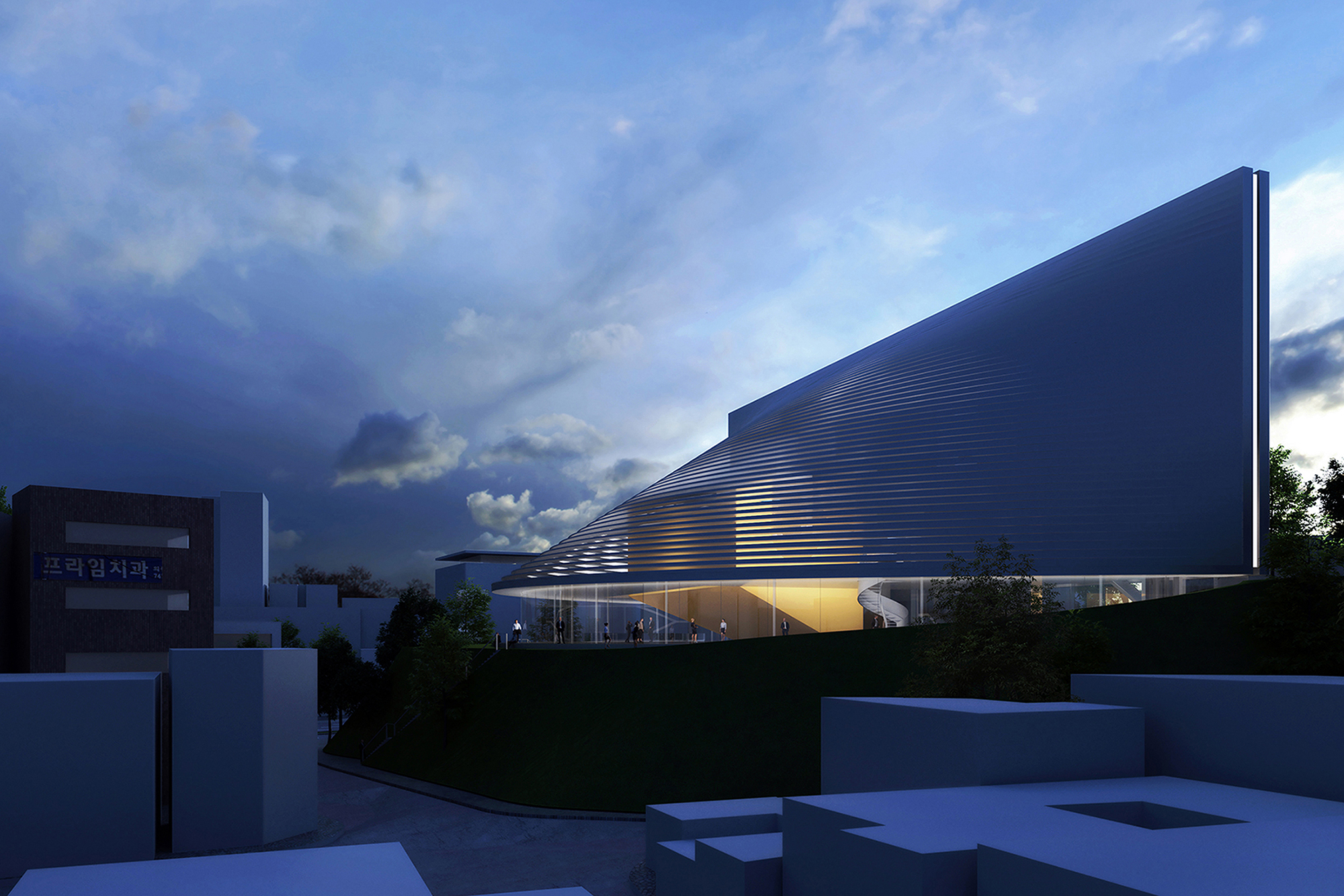
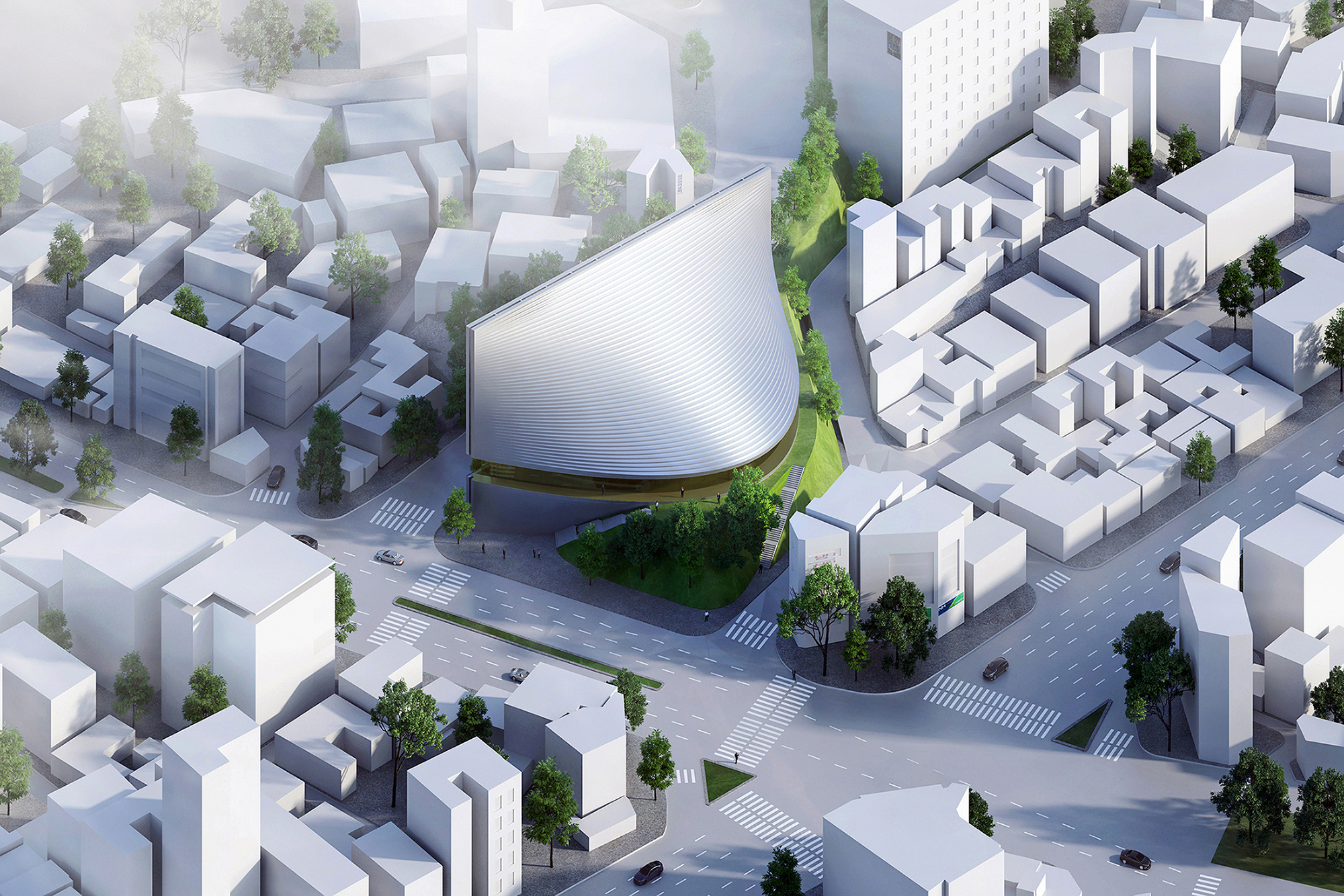
‘Park Canopy’
The key aim of the proposal is to balance the high-density development and the existing public park. ‘Park Canopy’ enhances the green space with its natural potential and reaches new human-scale intervention in the park.
Eight major mountains that have shaped the city scape for centuries, are the cornerstone of the Seoul identity. Respectfully in this situation we have chosen to position the existing mountain park as the icon of this development, maximizing the new intervention to the north side (road side). This way the building becomes a background of the existing mountain, exposing life in the park as an everyday spectacle.
Together it proposes a diverse and contemporary theatrical environment and opens panoramic views to the wider urban surroundings.
The south side facade follows the continuation of the undulating slope character of the existing topography. It also shapes as one level (human scale) canopy in the side of green park and in a side of the south-east neighborhood of small-scale housing. Consequently north side of the development takes shape of an urban block (near Seongbuk-ro 4 street and the multi-storey housing development).
Ground floor is designed as a public space. It detaches the underground and upper floors with a transparent and open panoramic lobby. The gap works as a smooth connection between exterior and interior (in the altitude of 49.0). The lower part of the volume merges with a landscape where upper part of the volume levitates over the landscape as a roof.
A theatre is interpreted as the core of facilities and suggests a fusion of traditional Korean and Modern Theatre principles.
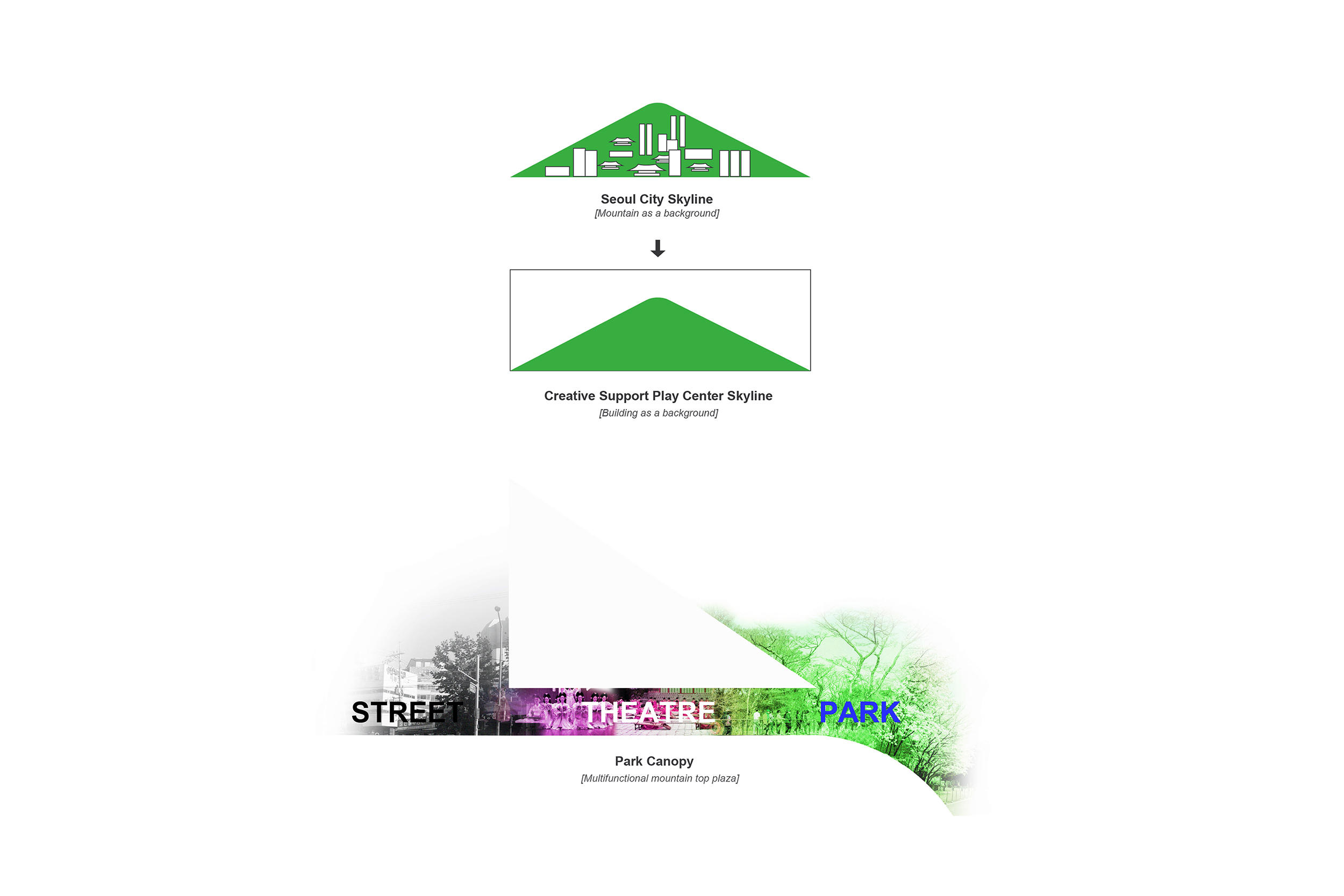
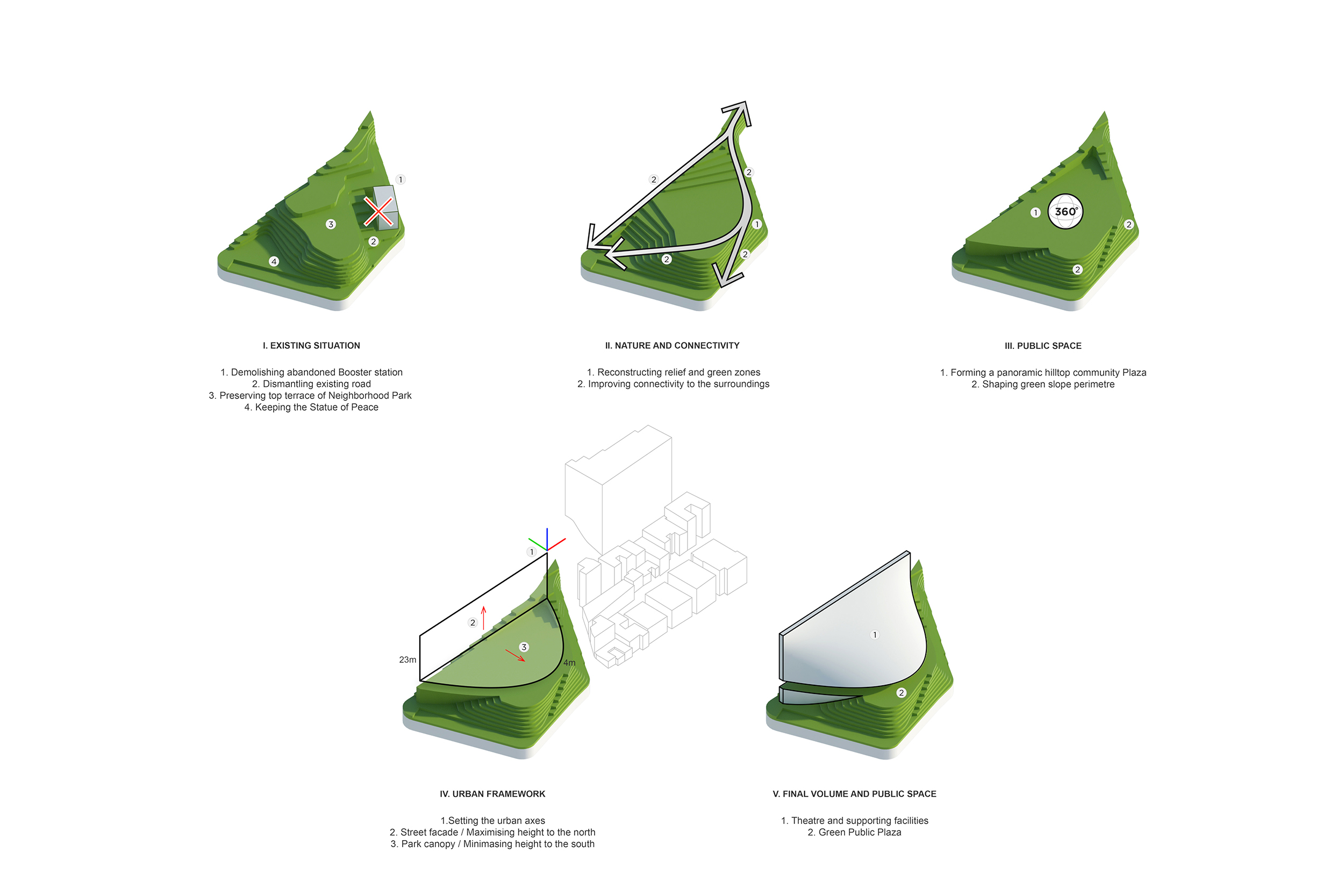

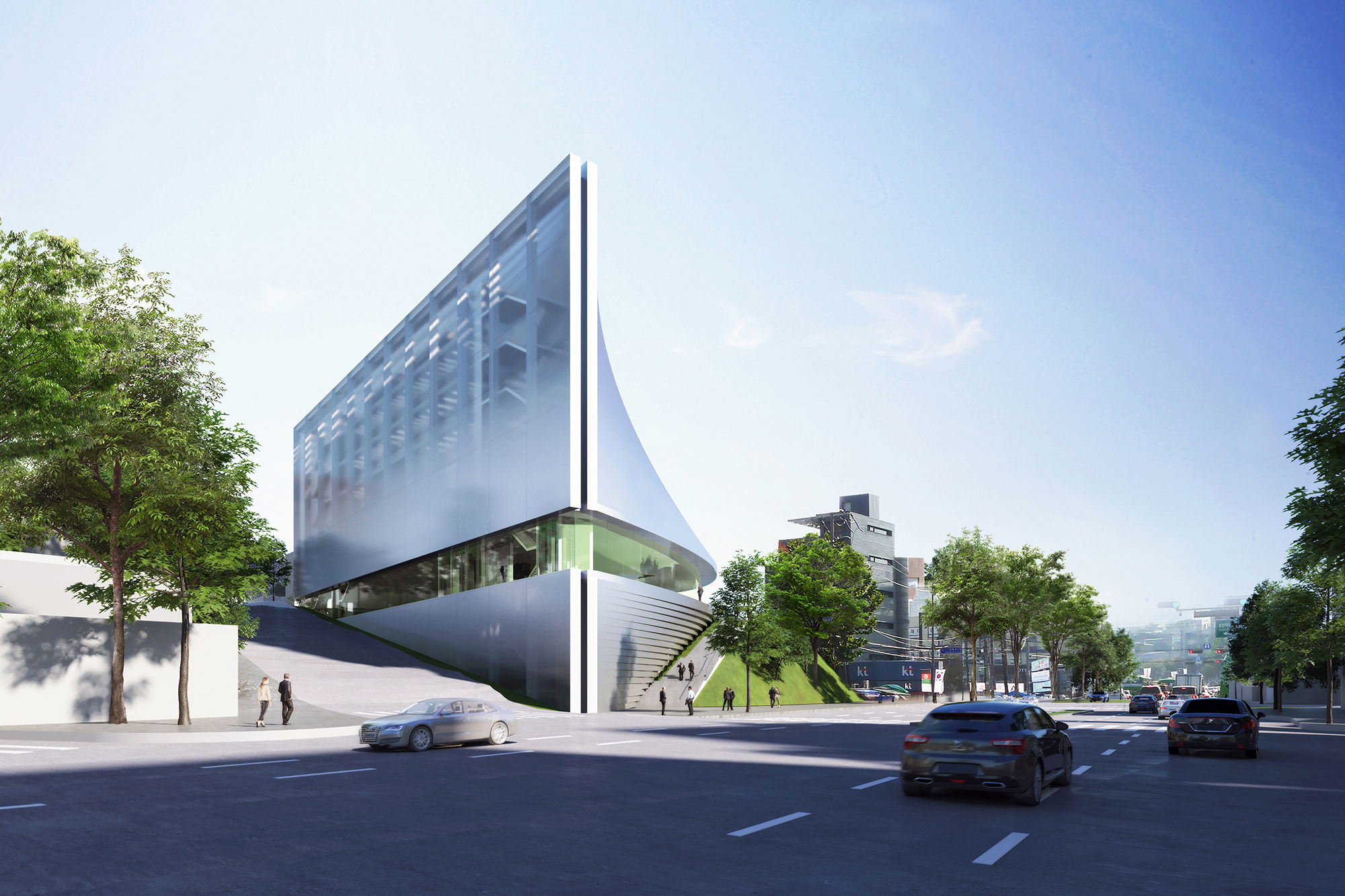
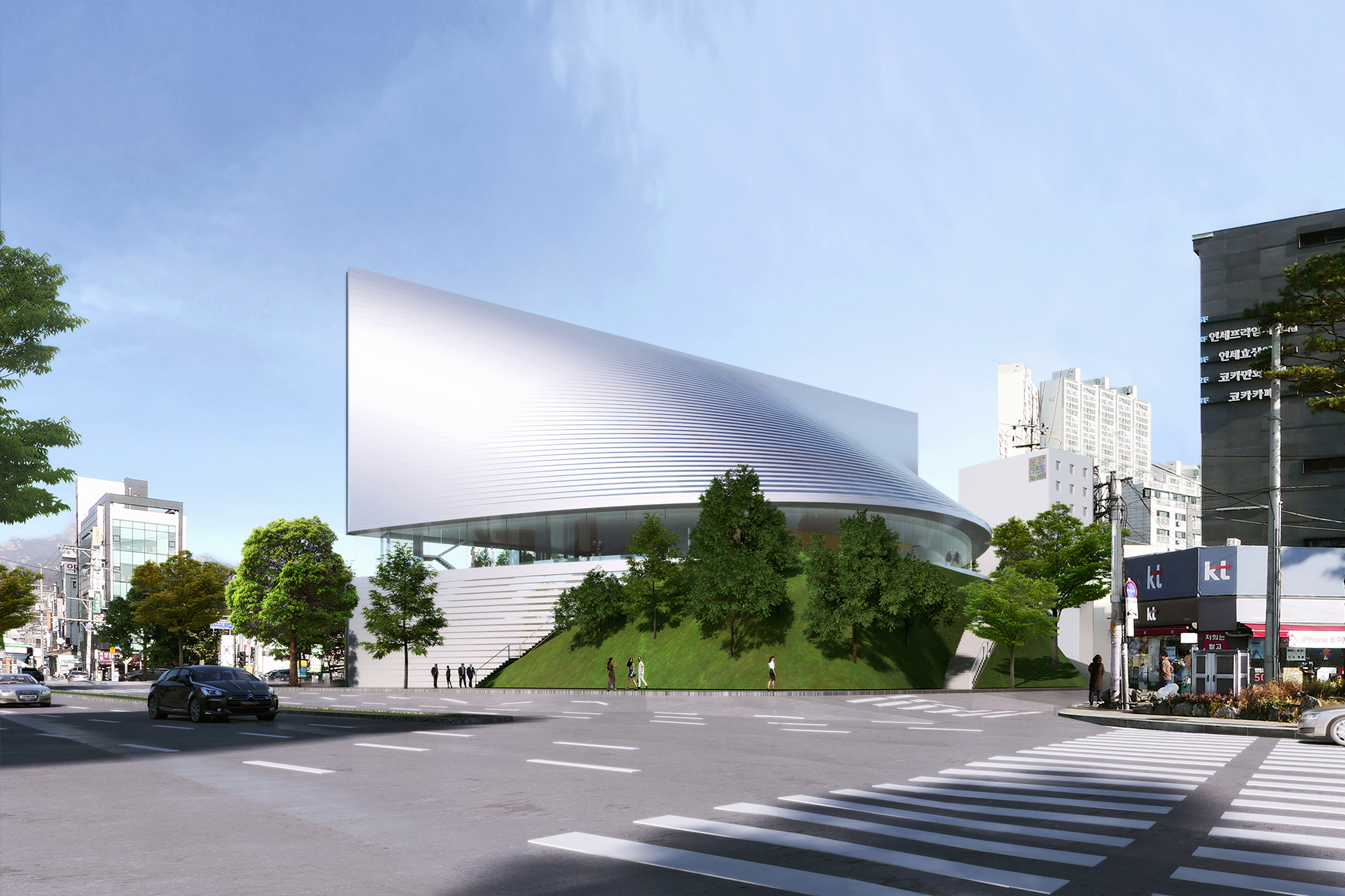
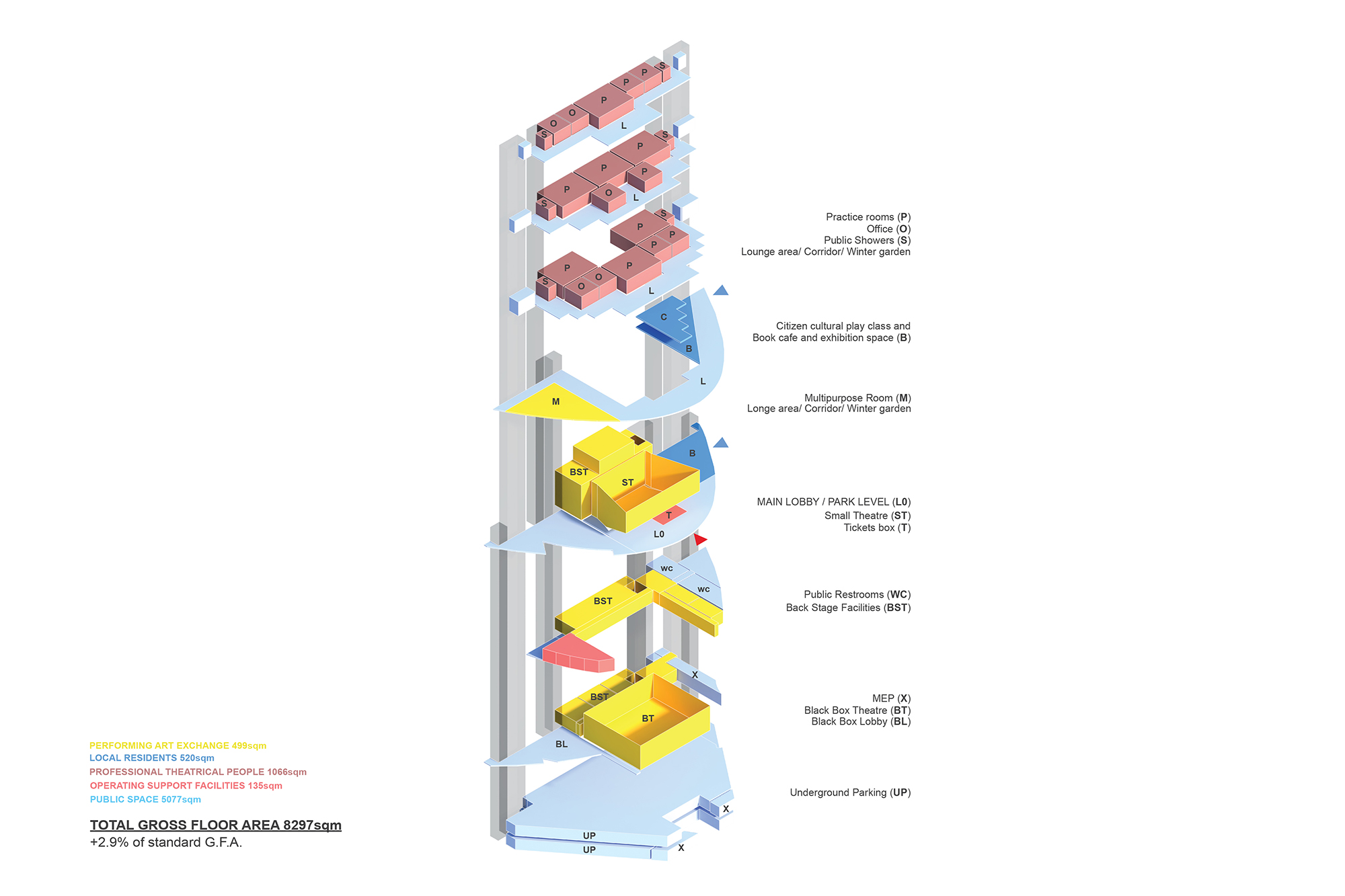
The Facility formation :
1. 360° ground floor lobby – where all events start and main circulations come together (inside and outside)
2. Theatre (Main theatre and the black box) are the volumetric epicenters of functions.
3. The plinth is for vertical circulation which works as an infrastructure at the north facade.
4. Atrium – Winter garden on the south facade connecting all the terraces of upper floors.
5. The layering of other functions by levels:
– Theatre people top 3 floors;
– Event spaces and Book cafe with community meeting areas in the 1st floor;
– Ground floor is served as public for pre-events with the reception, including part of Book cafe and its terrace in the park;
– Support and backstage in the lower ground floor;
– Parking in U-1 a U-2 floors (88 cars / >3% for disabled people)
– Public Showers and WC are spread in every upper floor near the practice rooms;
– Public toilets are below the lobby with a separate public sub-lobby in G-1 floor;
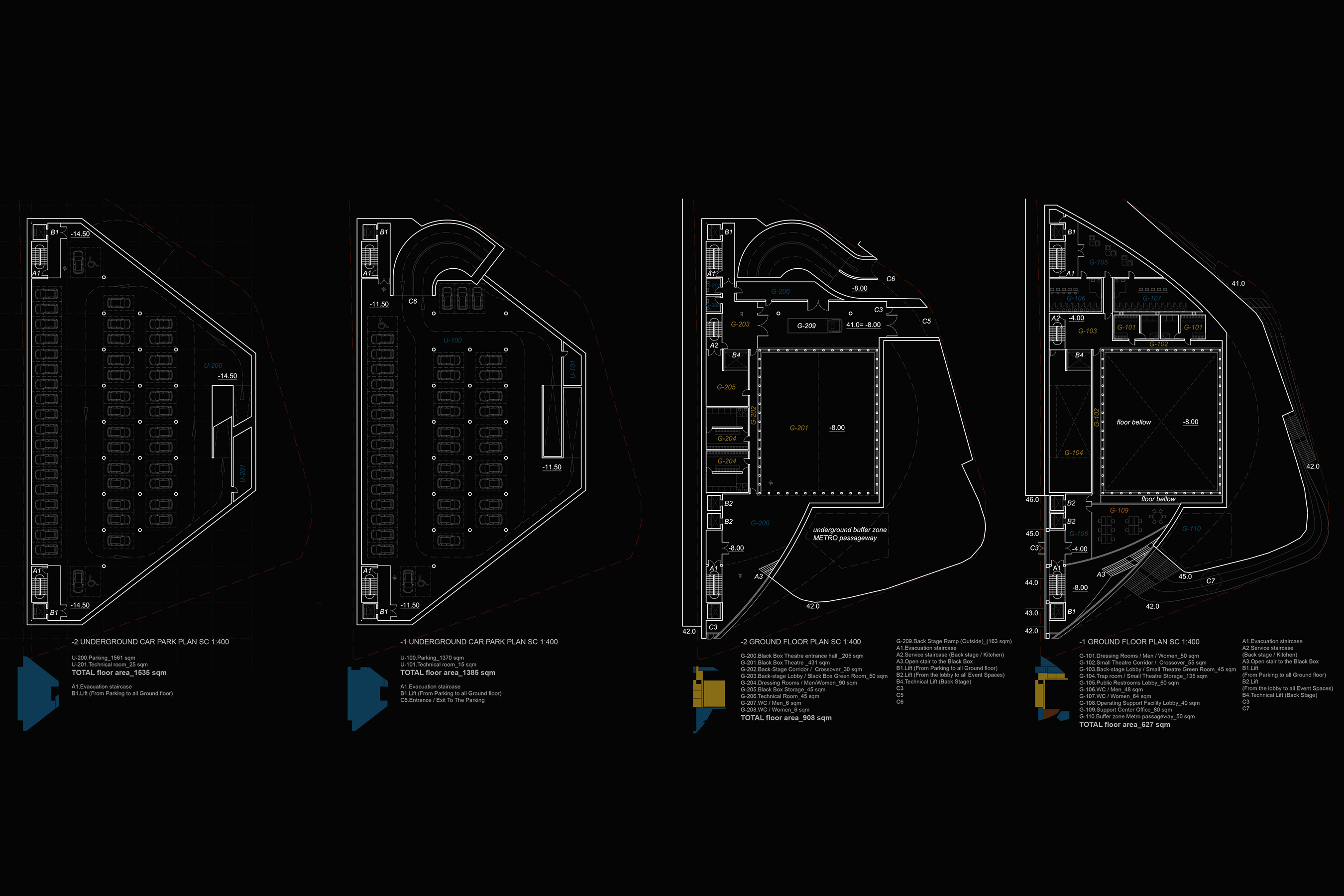
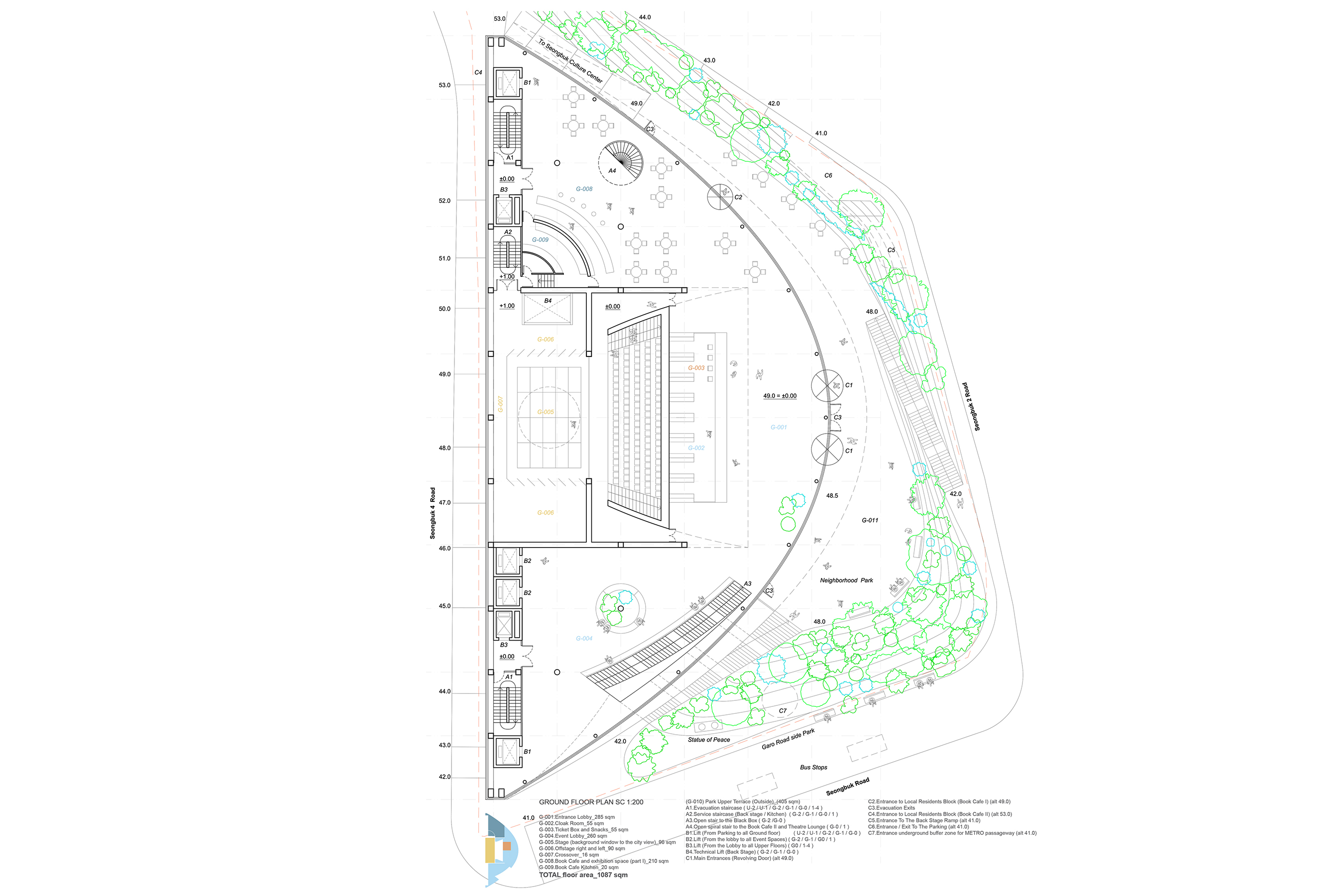
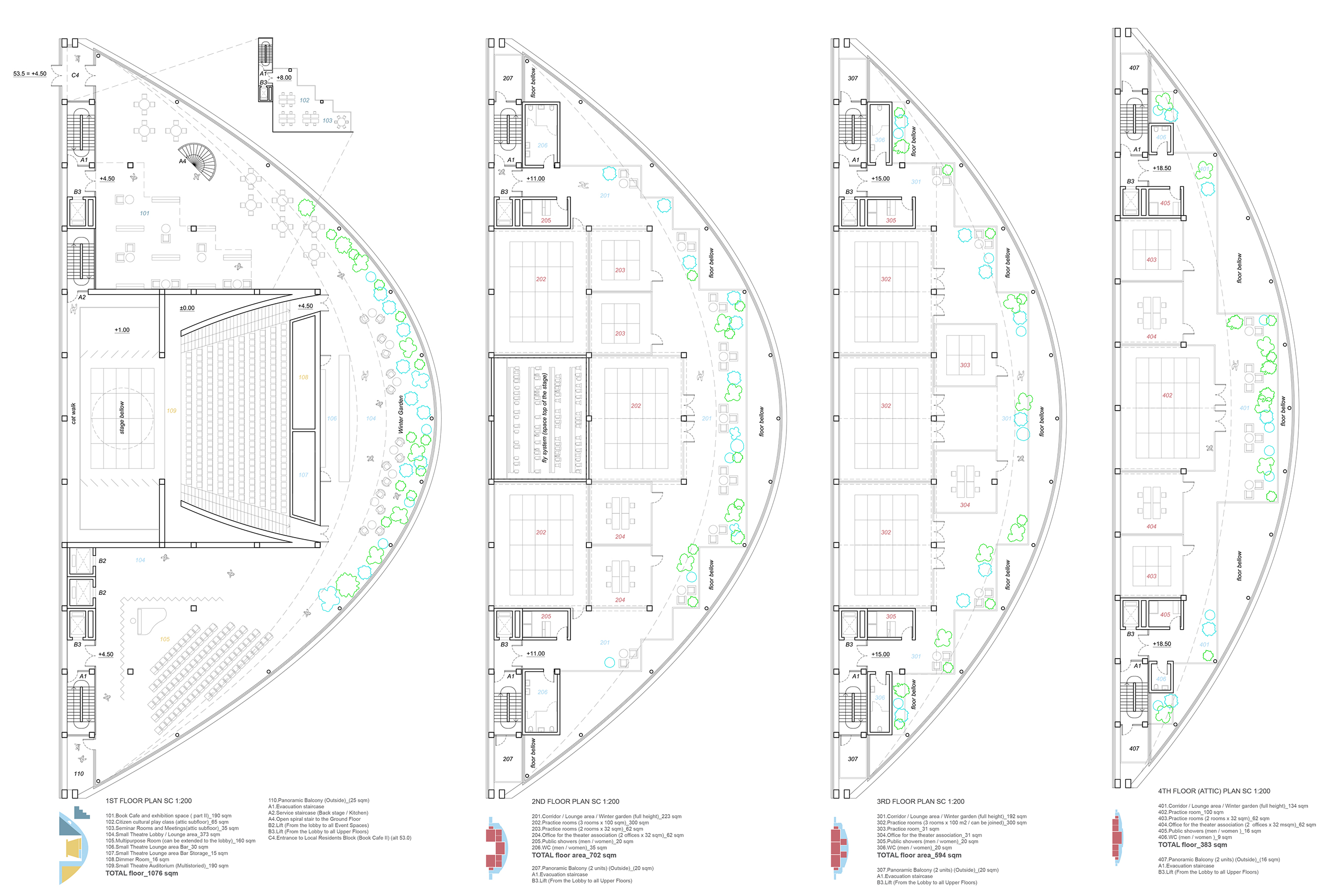
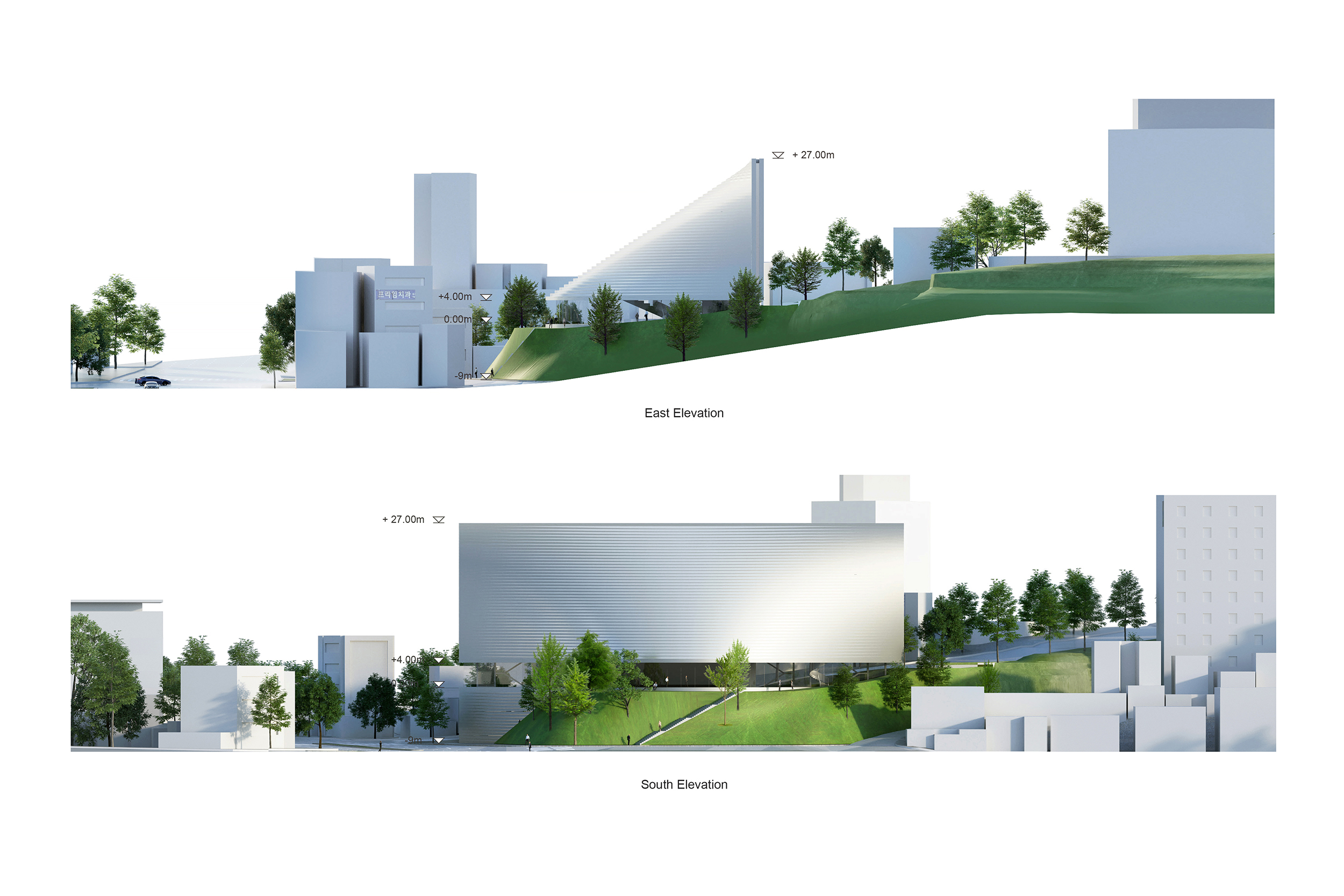
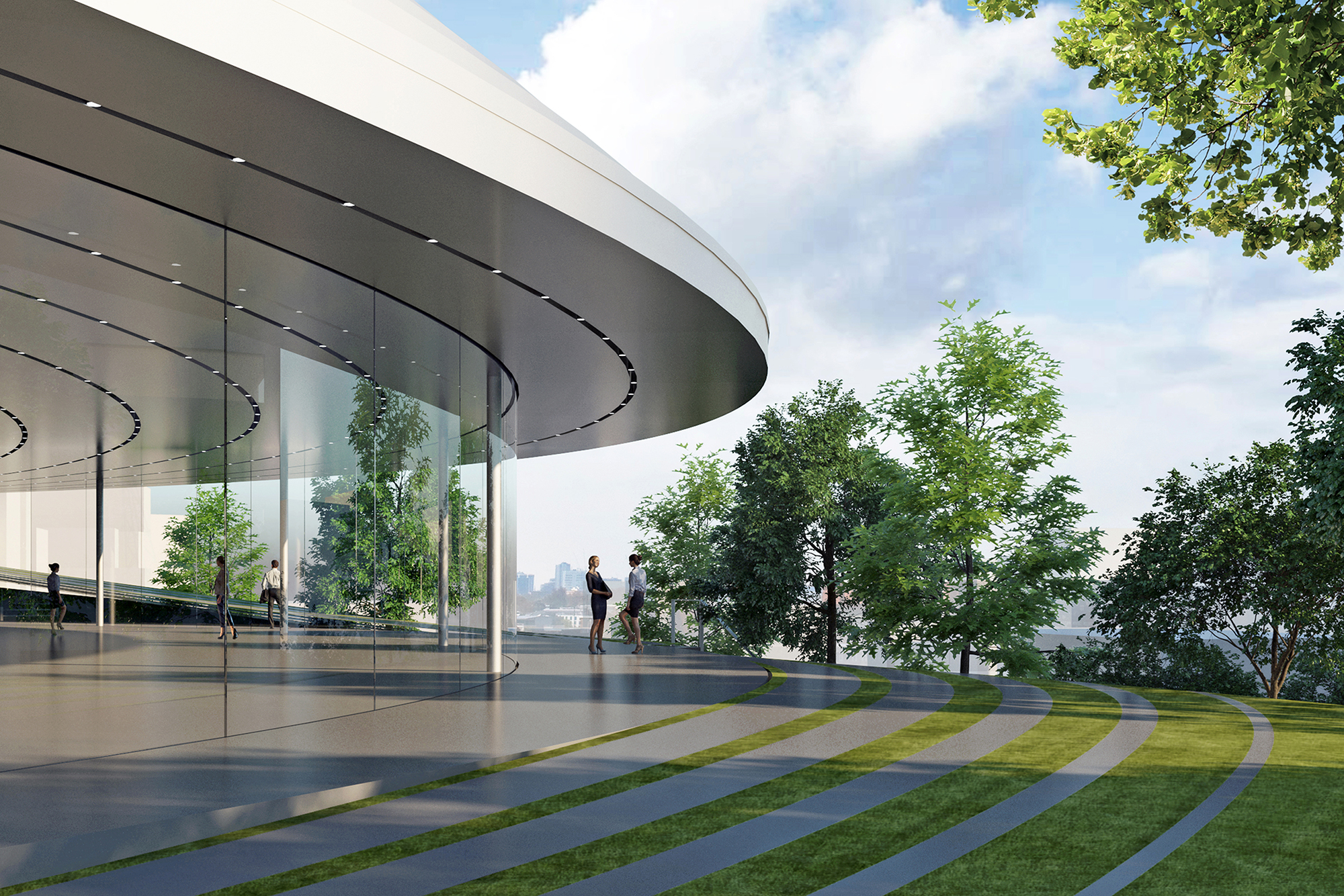
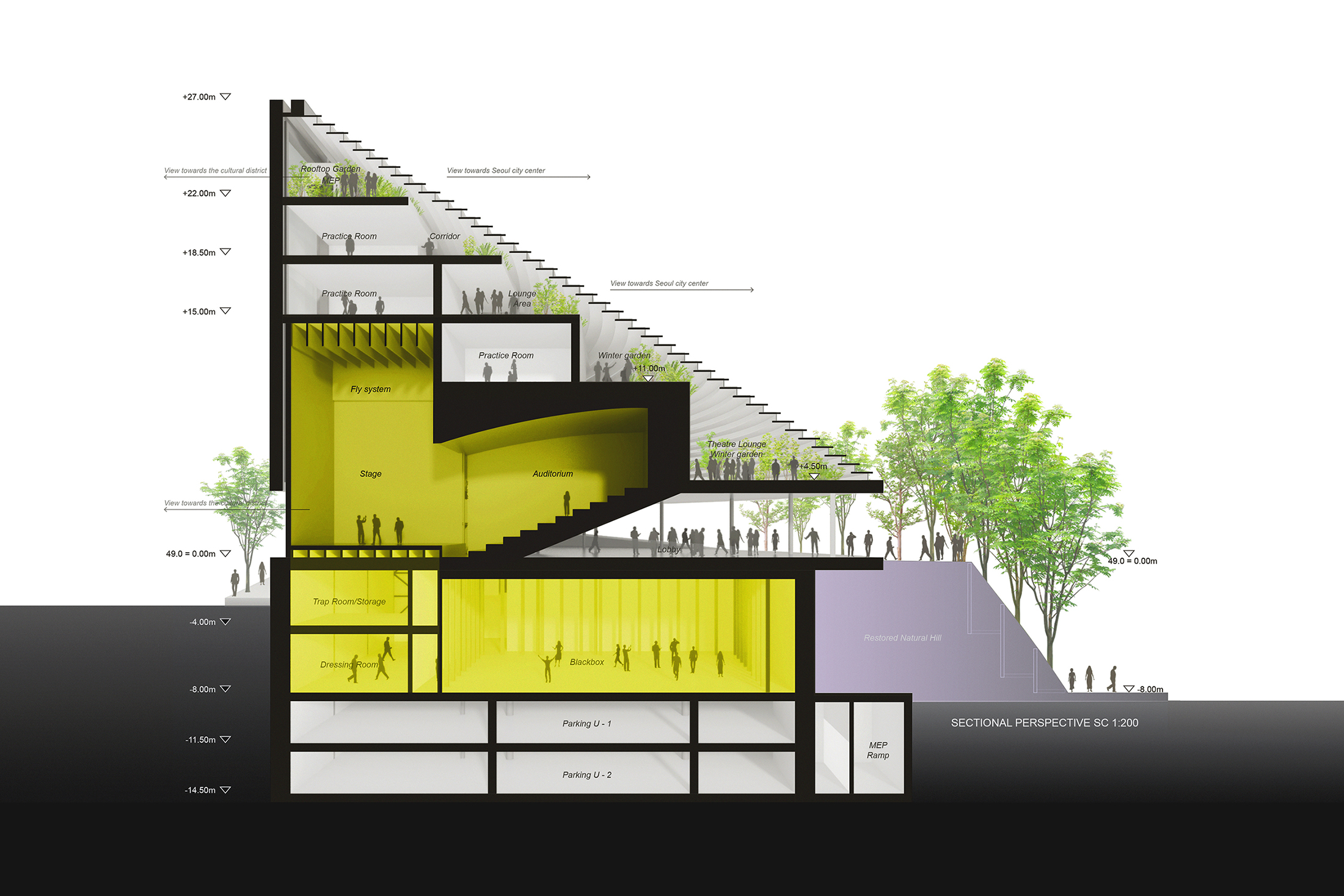
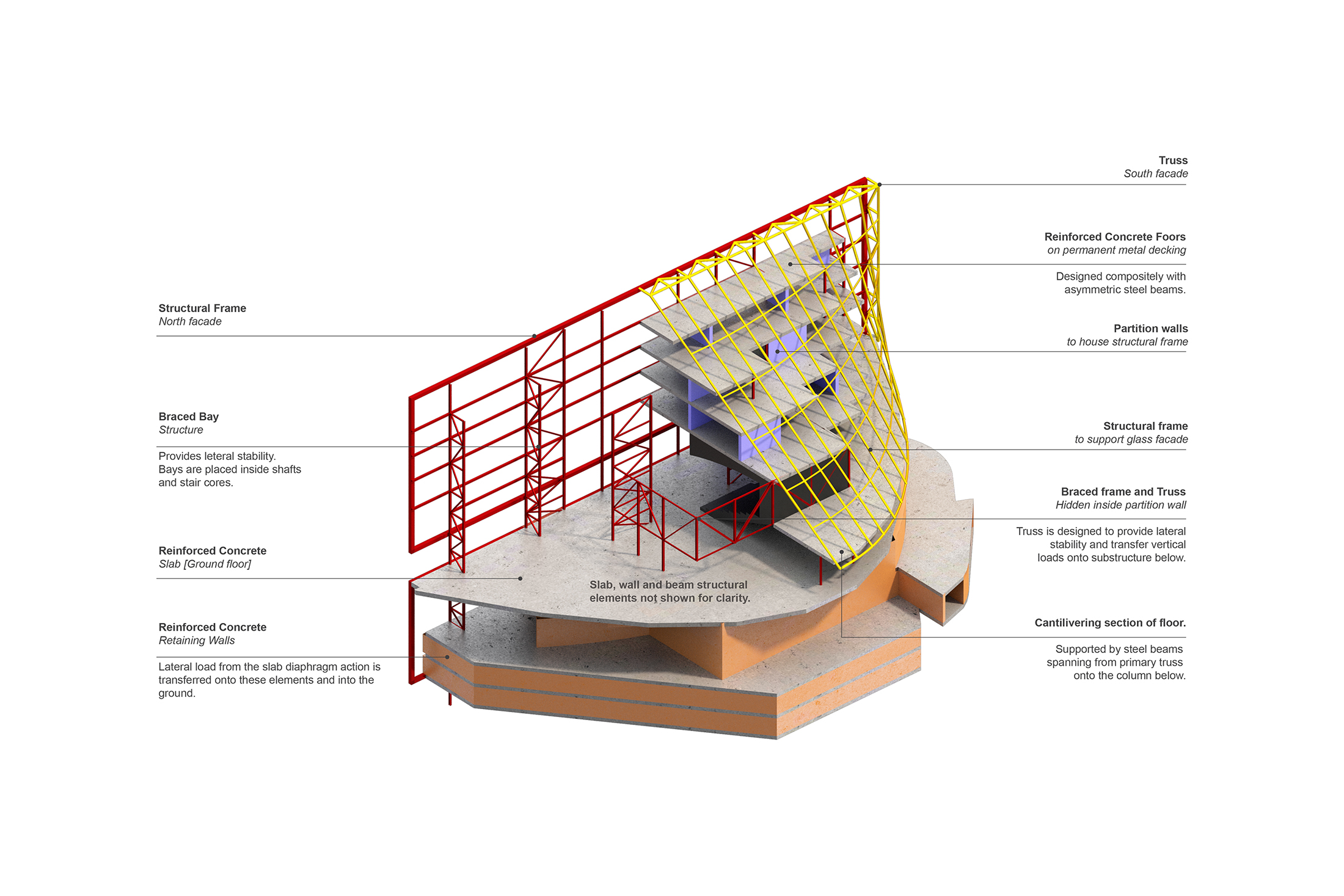
Structure – Key Aspirations
The key design aspiration for the building structure design is to maximize clear floor to ceiling heights and to provide flexibility for under-slab building services distribution.
These have been achieved by considering structural framing options that minimize the structural floor depth. Flexibility is provided by removing down-stand beams and having a flat soffit. This allows the building services engineer to distribute freely in both horizontal directions which is an important criteria for the theatre building.
Frame Development
The current preference is for a composite steel framed building, which sits on top of the reinforced concrete substructure, partially covered by soil. The selected floor solution is Reinforced Concrete floors on permanent metal decking, designed compositely with asymmetric steel beams. The overall depth of this solution is much shallower than for a standard steel frame. In addition, steel frame construction is quick compared with other forms of construction.
The building has several cantilevered sections of floor. These are located along the South face. The cantilevers will be supported using a combination of back-spans and bracing. The heavily loaded pant rooms have been positioned away from the cantilevered areas – North face.
Structure below the ground floor (main lobby) is primarily made of in-situ Reinforced Concrete walls, slabs and columns. The column layout has been developed to maximize the space of the ‘black box’ and amount of car parking available.
Stability
Wind and Seismic loads imposed on the building are distributed horizontally to the steel braced bays through diaphragm action across the suspended slabs. The braced bays then transfer forces to the RC substructure and foundations.
Braced bays were identified by selecting full height walls where possible (typically lift shafts and stair cores), with a good distribution throughout the building. Where bracing is to be installed within a wall cavity wall flat bar bracing is proposed, therefore this does not affect architectural vision.
External glass facade
North face façade is assumed to span vertically between two floors. This will be supported by the primary steel structure and a secondary mullion system required for the glass curtain wall.
The South façade required a more complex solution. Structural steel frame is suggested to support glazing. A combination of tubular shaped sections and moment connections to the slab is proposed.
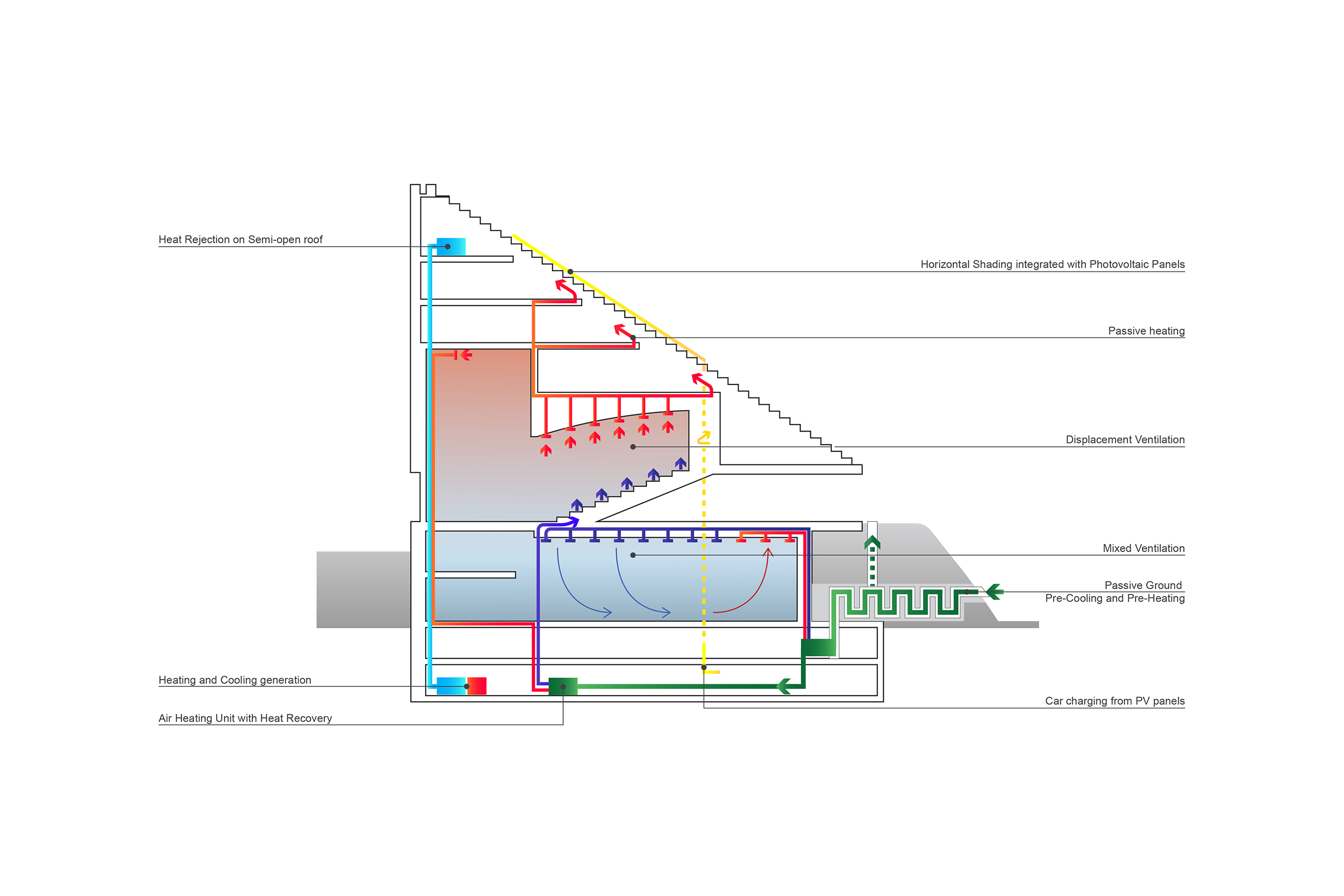
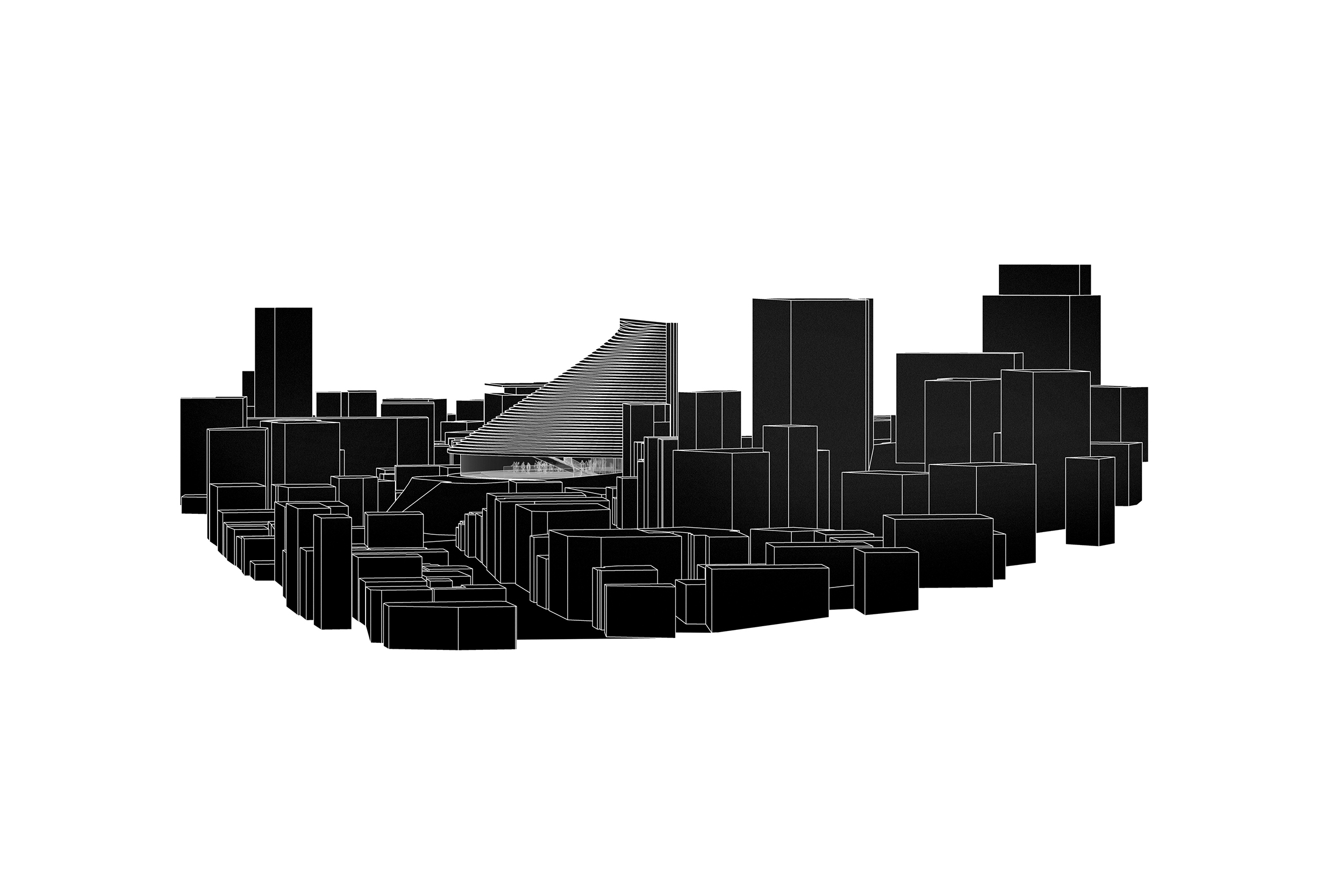
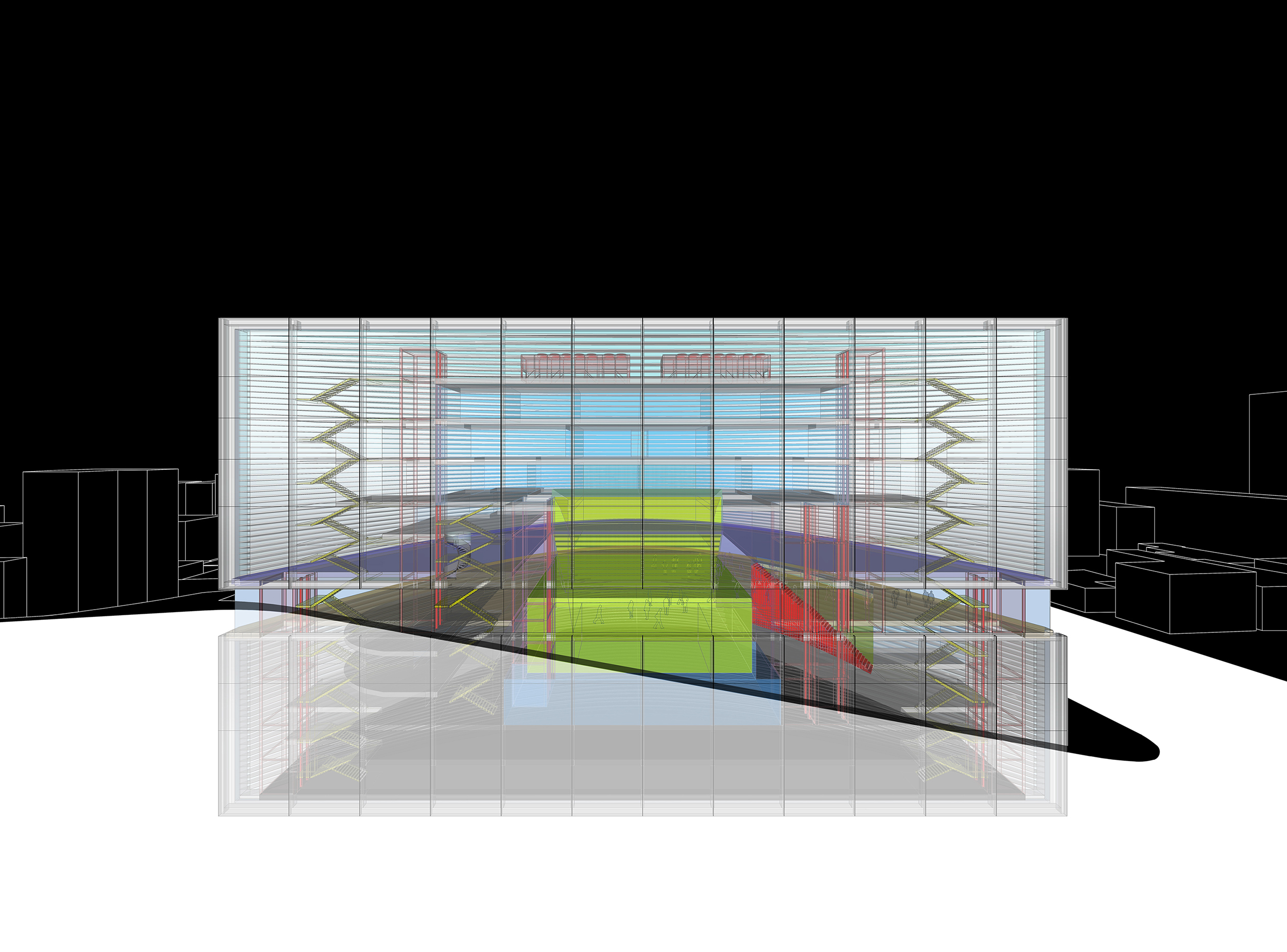
publications:
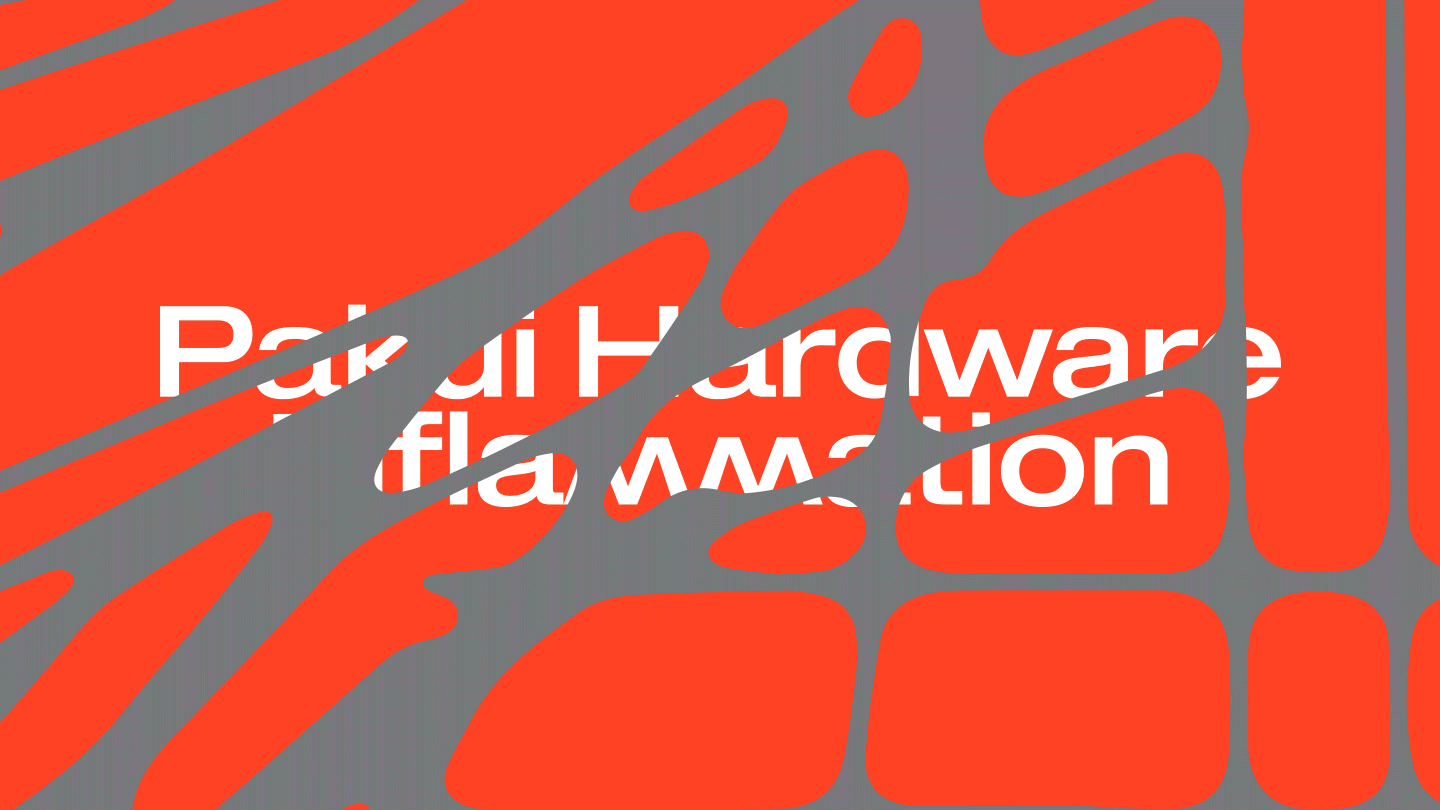
O.Lozuraitytė, P.Išora
N.Černiauskaitė, U.Gelguda
curator: V.Klimašauskas
graphic design: V.Volbekas
light design: E. Sabaliauskas
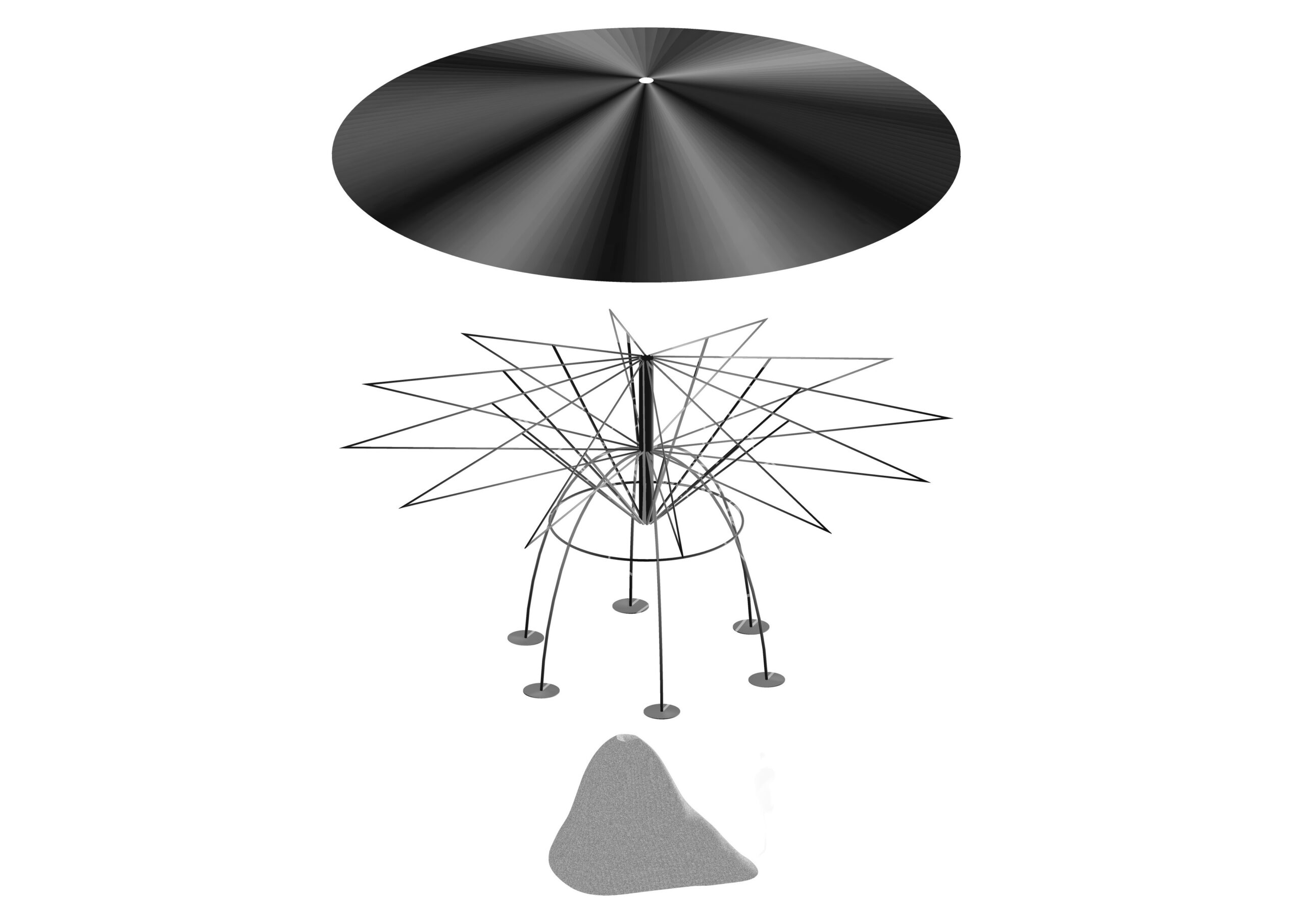
public gazebo
P.Išora, O.Lozuraitytė
assisting architect: G.Dovydėnas
artist/oven author:
K.Krasauskaitė
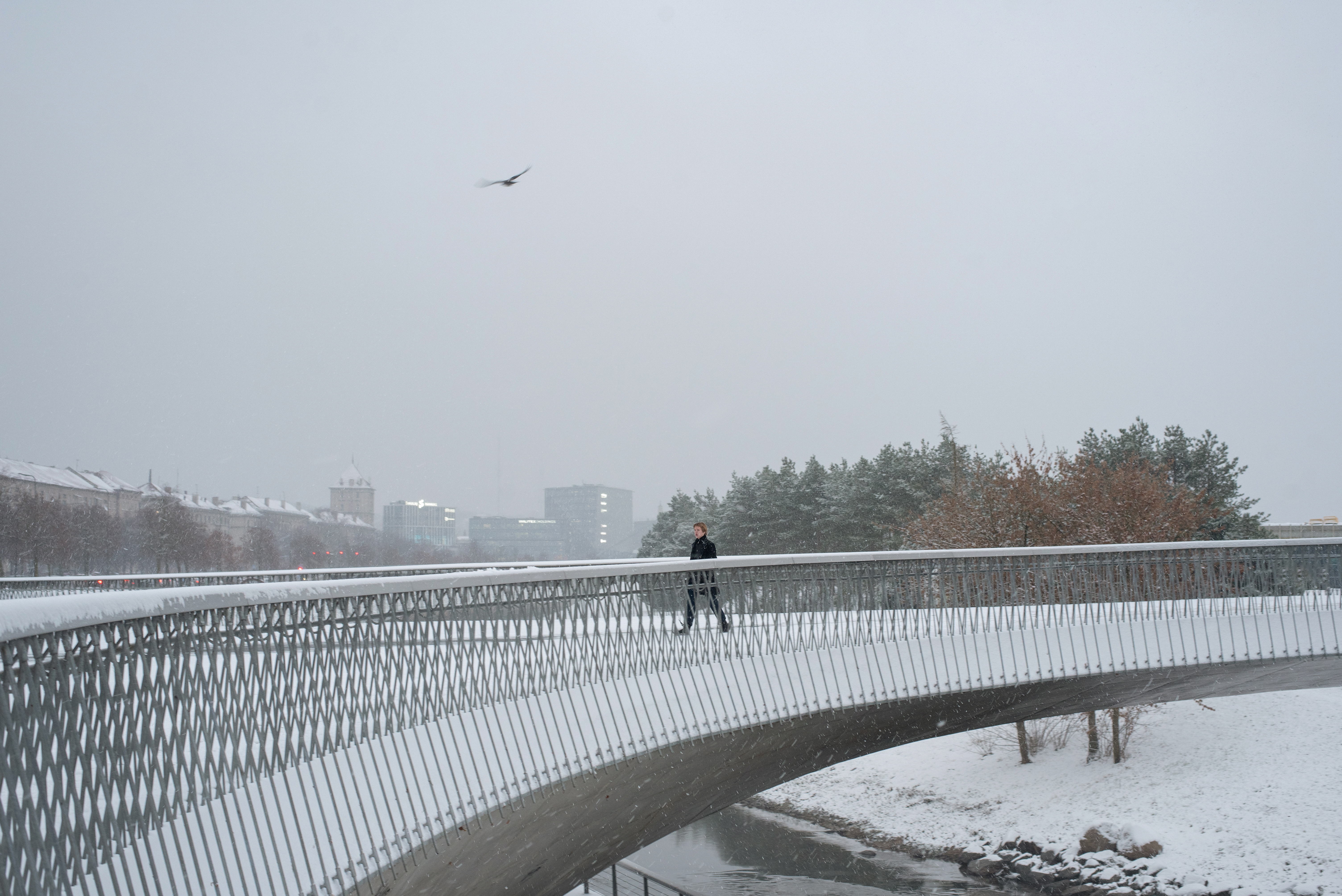
P.Išora
I.Ksnelashvili
D.Daunys
TEC Infrastructure
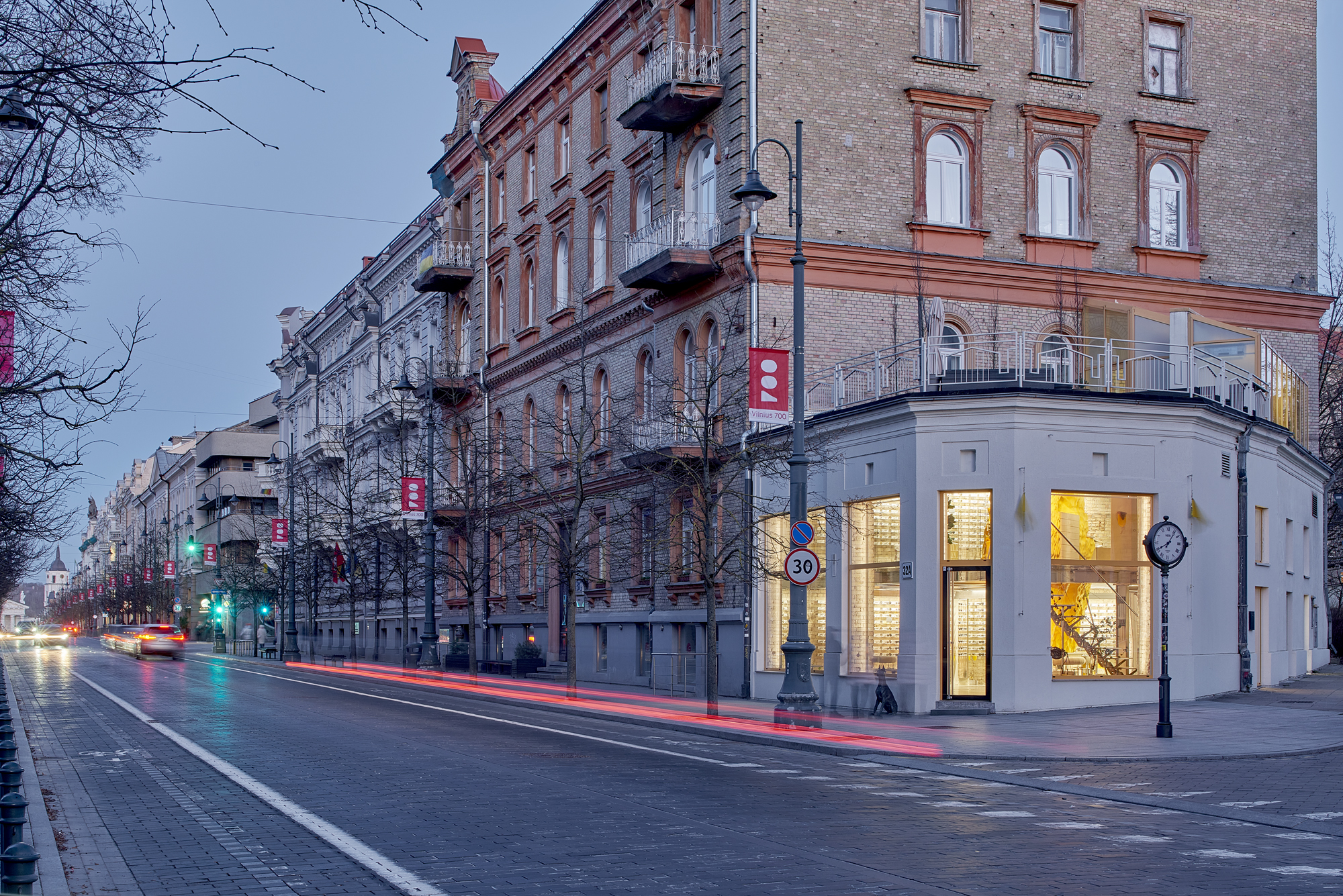
O. Lozuraitytė, P. Išora
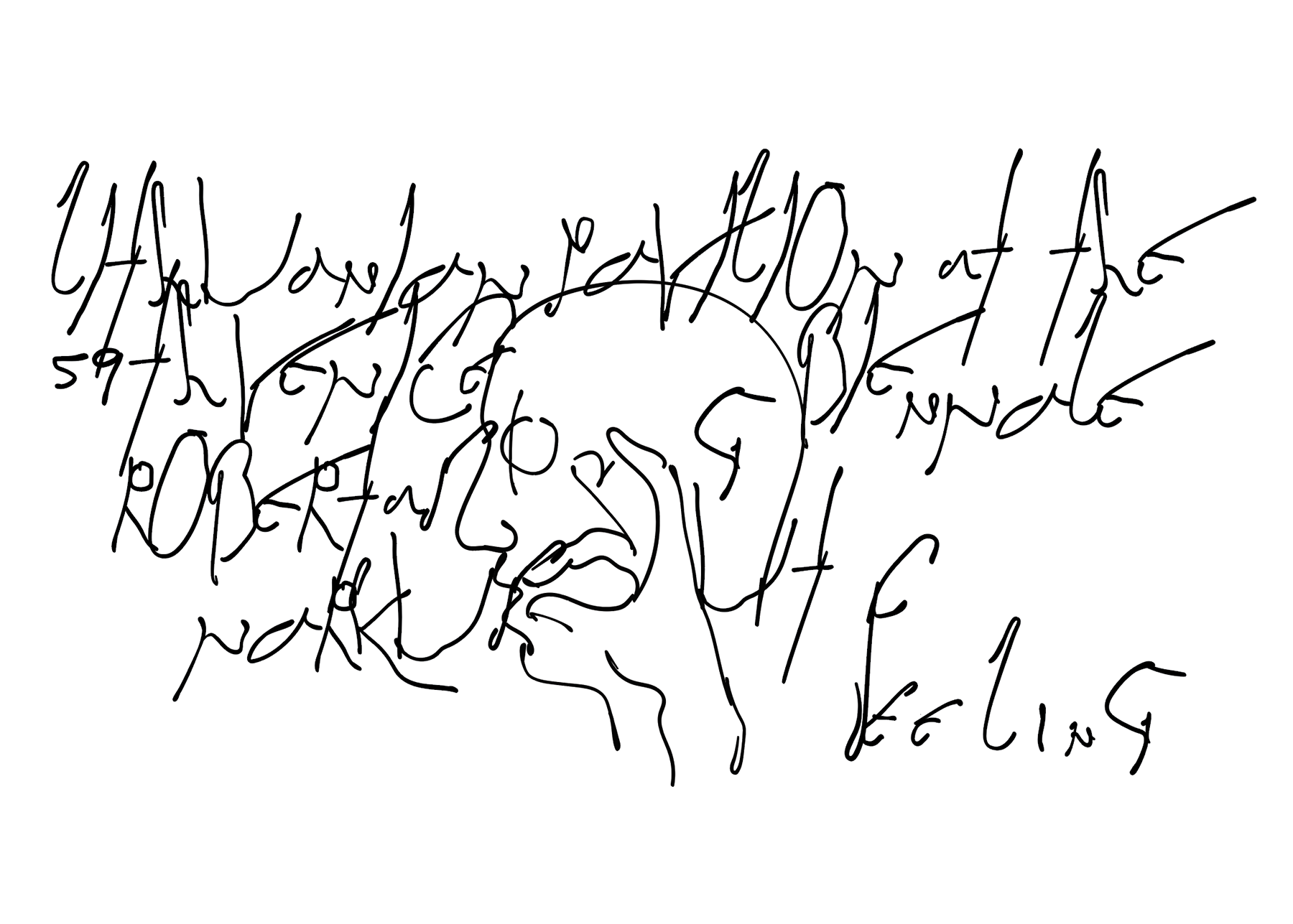
59th Venice Art Biennale
R.Narkus
commissioner:
K.Kuizinas
curator:
N.Bumblienė
fermentation research:
D.Zilber
visual identity:
N.Rimkus, V.Volbekas
architects:
P.Išora, O.Lozuraitytė, assisting architect:
G.Černiavskaja
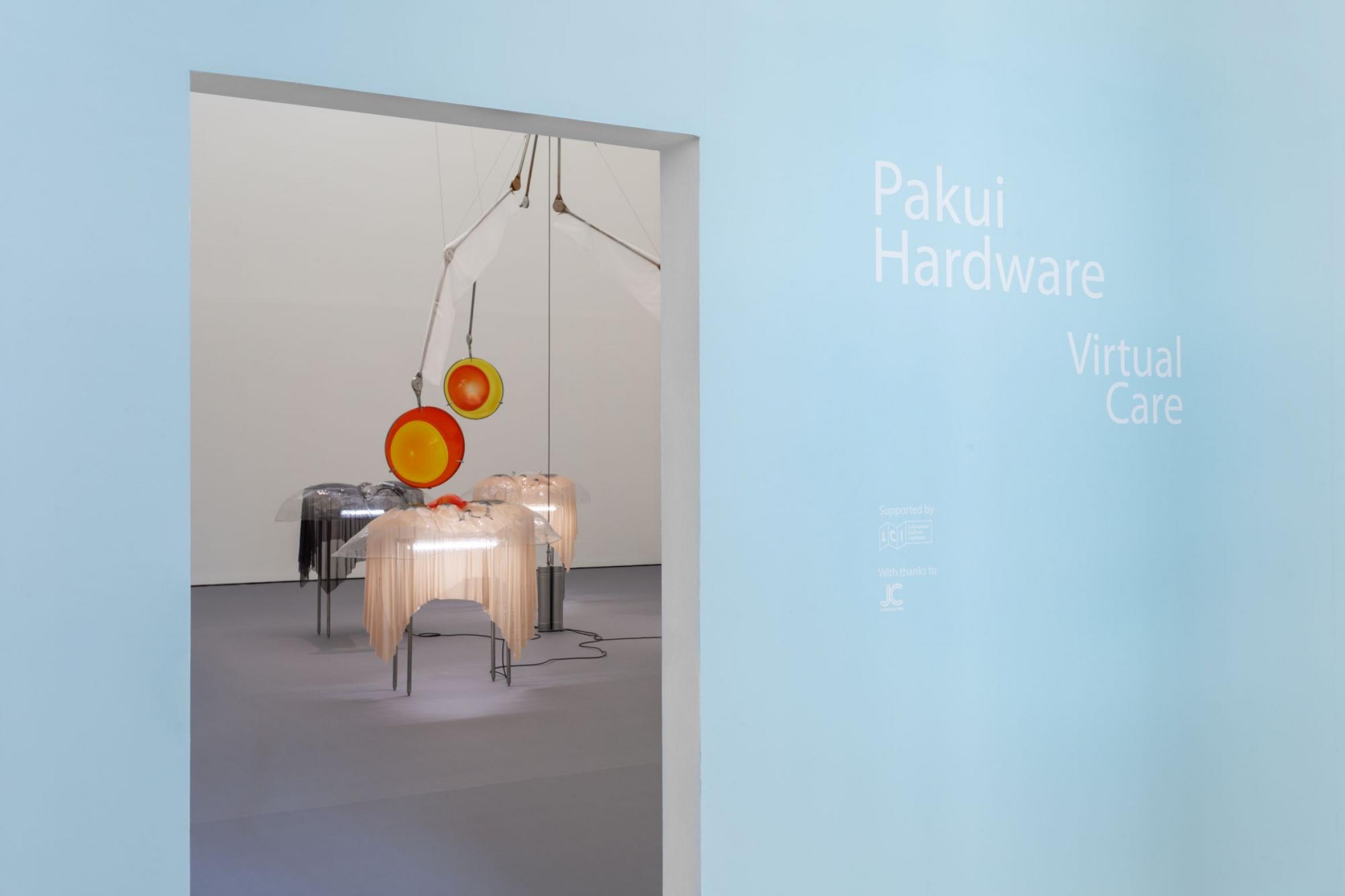
P. Išora, O. Lozuraitytė
N.Černiauskaitė, U.Gelguda
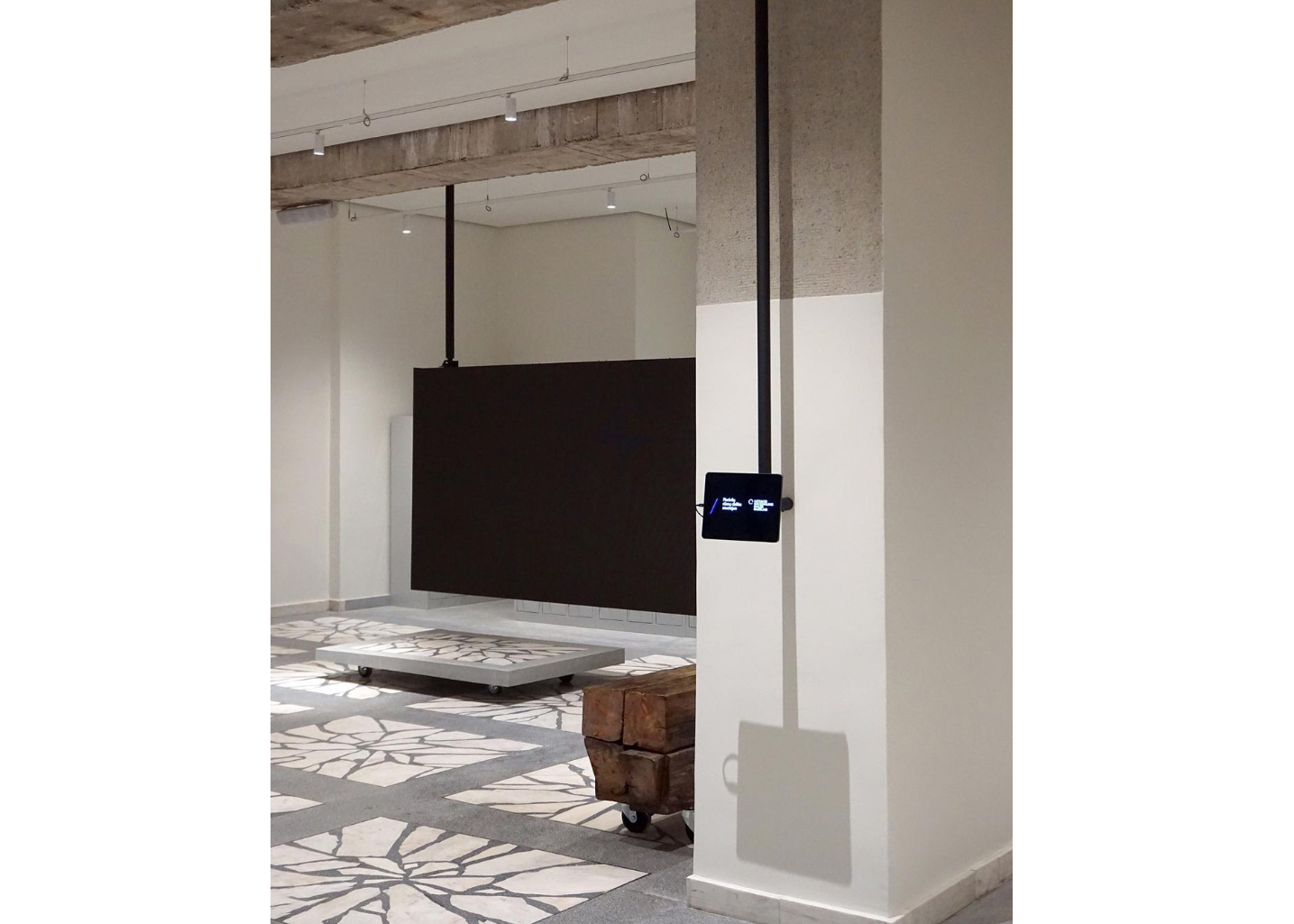
O.Lozuraitytė, P.Išora
Collaborators/designers:
M.Puipaitė, V.Gečas

17th Venice Architecture Biennale
P. Išora, O. Lozuraitytė
J.Urbonas
curator:
J.Boelen
assisting curator:
M.Batakytė
commissioner:
J.Reklaite
deployable structures:
V.Suncovas
graphic design:
Studio Pointer
O.Lozuraitytė, P.Išora
assisting architect:
G. Černiasvkaja
D.Gambickaitė, L.Rukevičiūtė, V.Michelkevičius, K.Žukauskaitė
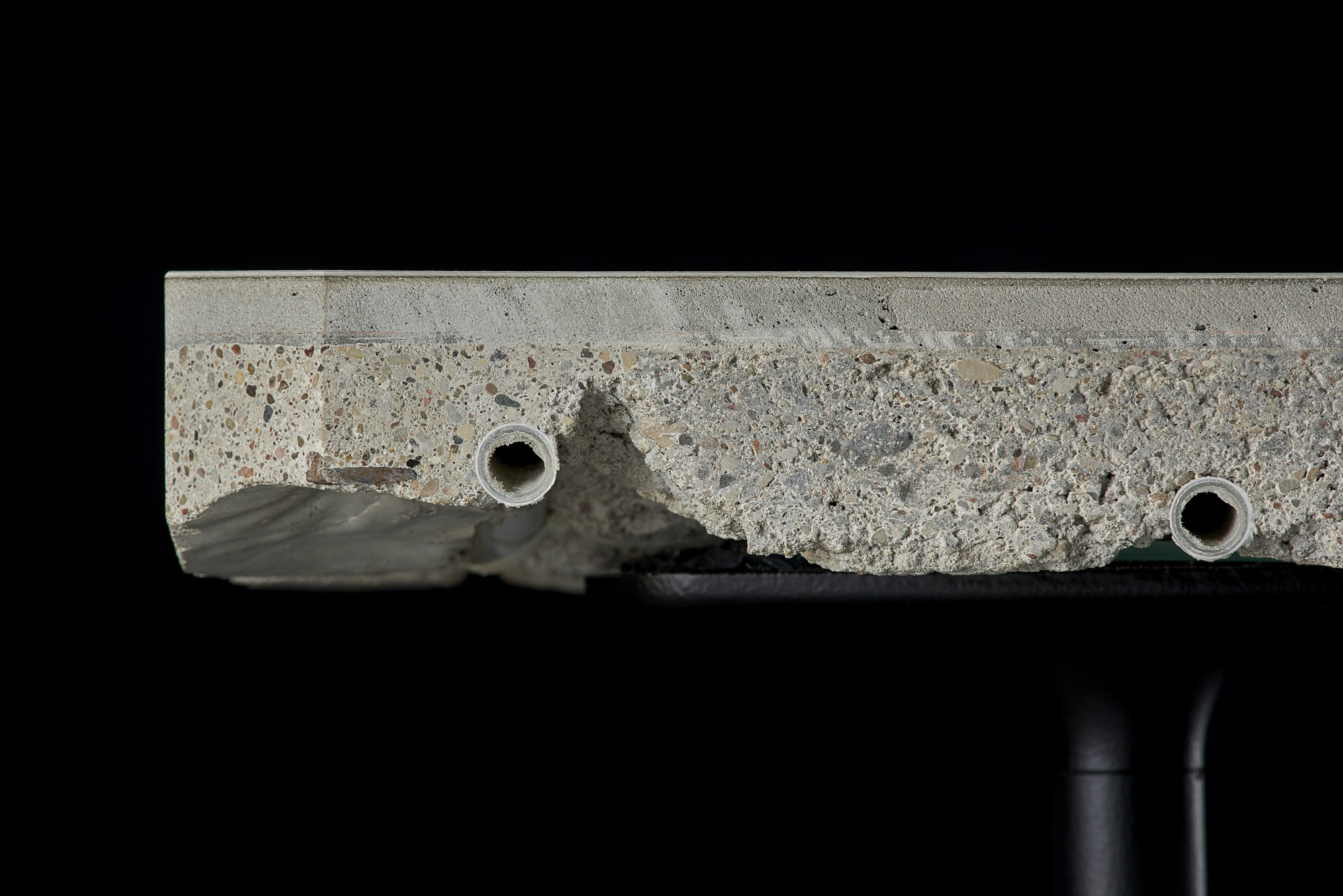
O.Lozuraitytė, P.Išora
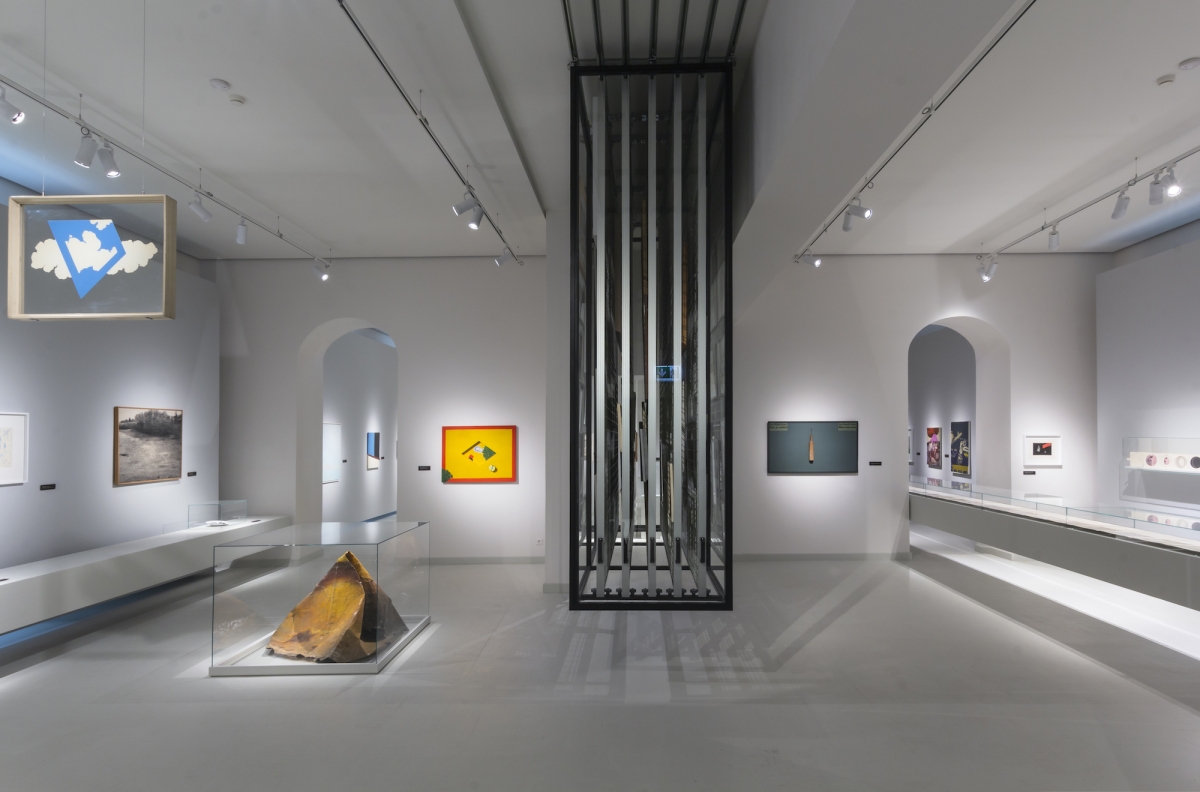
P.Išora, O.Lozuraitytė
A.Gelūnas
collection:
V. Tarasov
graphic design:
V. Volbekas
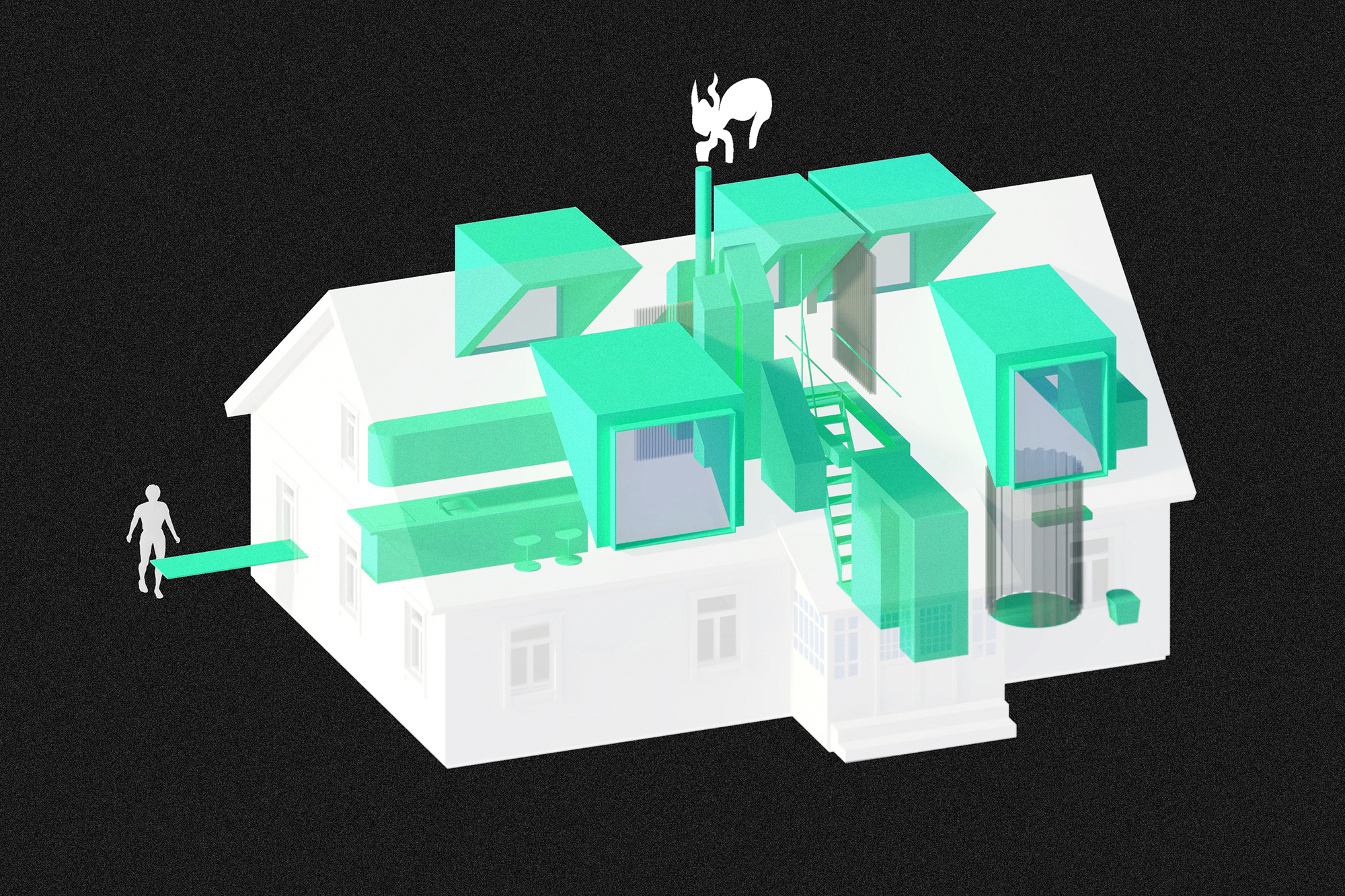
P. Išora, O. Lozuraitytė
assisting architect:
G. Černiavskaja
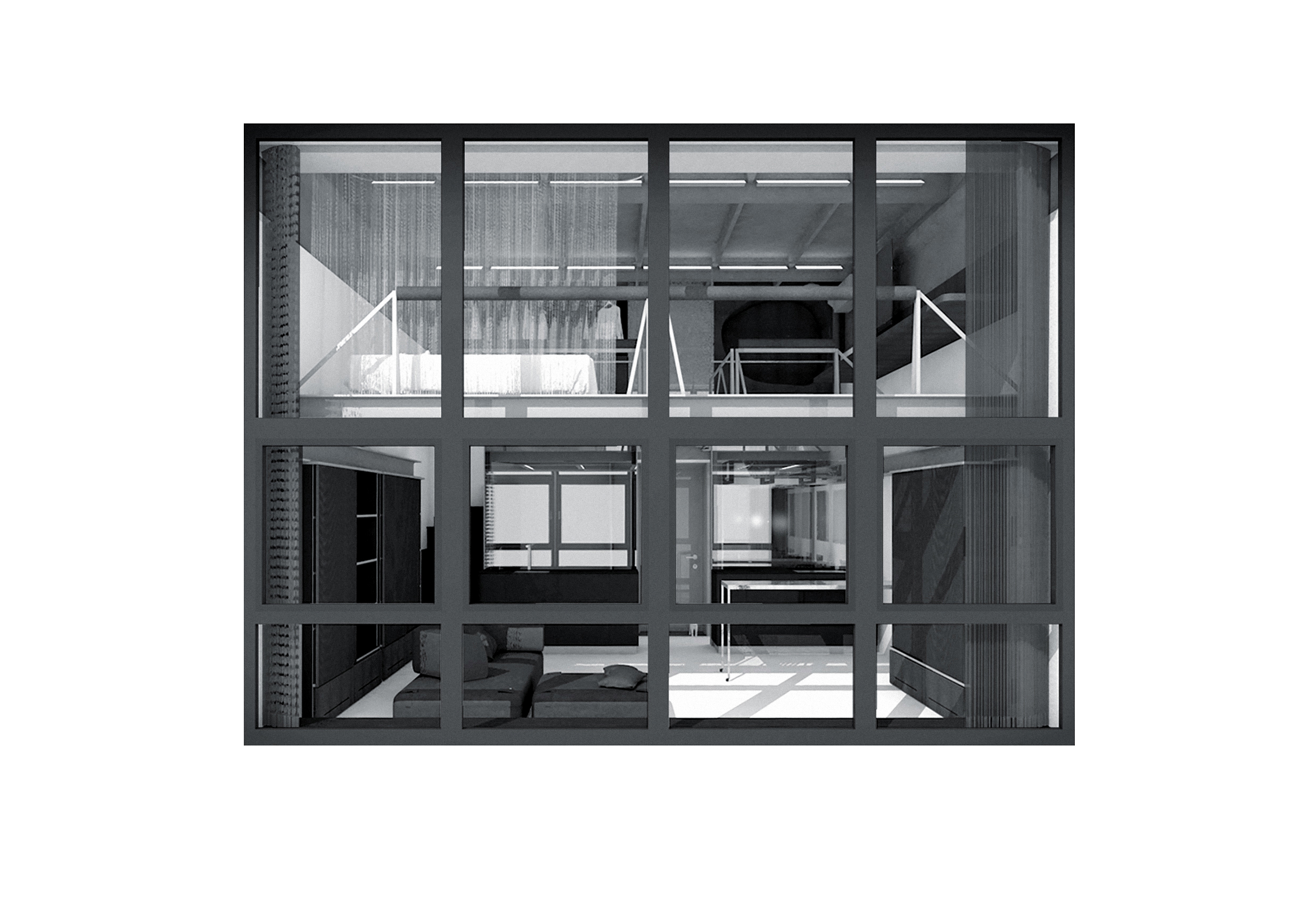
O.Lozuraitytė, P.Išora
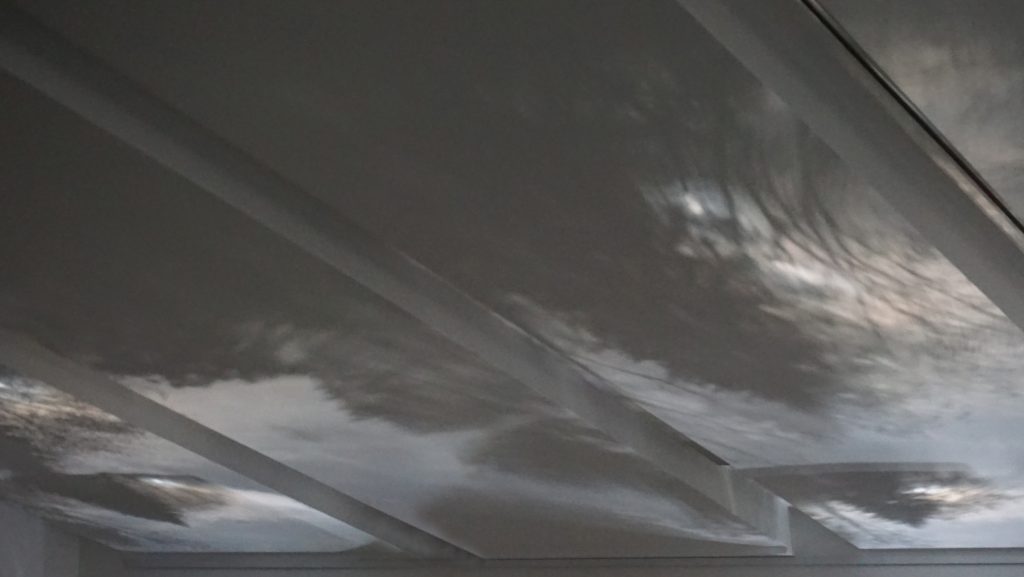
O.Lozuraitytė, P.Išora
assisting architect:
G. Darškutė
J.Jonutytė, K.Markevičiūtė, Y.Norton
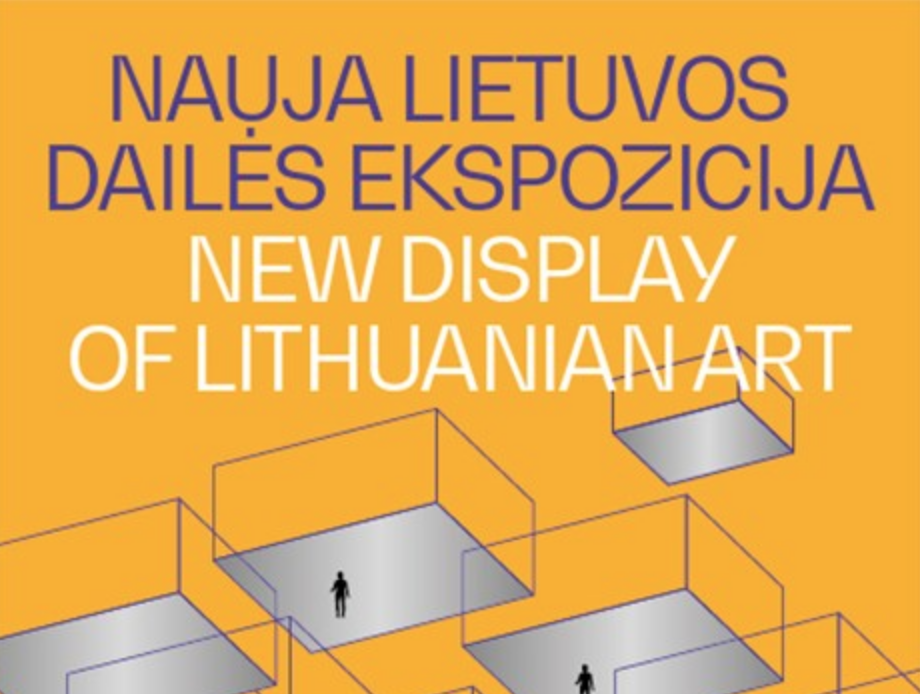
O.Lozuraitytė, P.Išora
dr. L.Jablonskienė, L.Kreivytė, J.M.Jurašienė, dr. A.Narušytė.
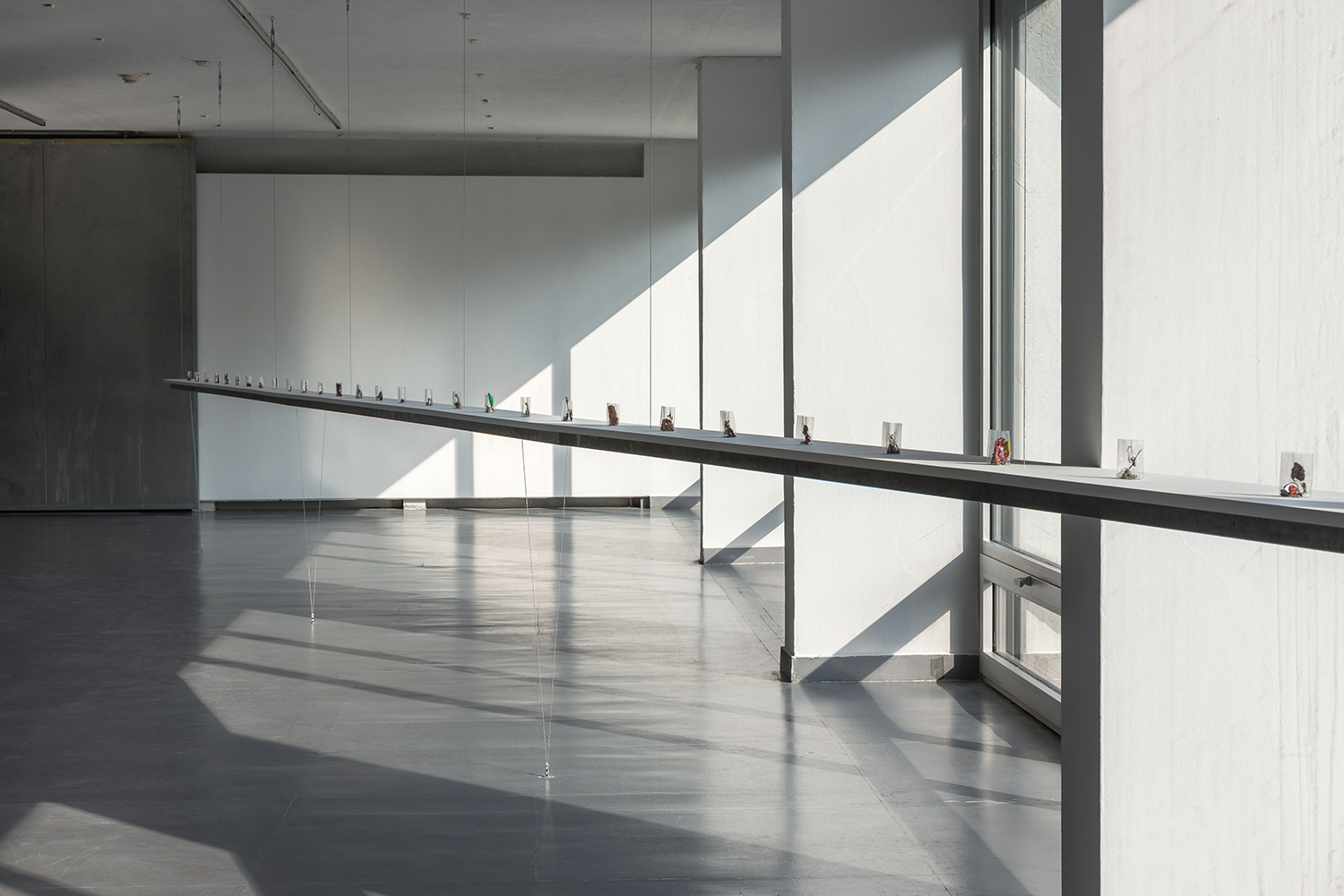
P.Išora, O.Lozuraitytė
Y.Agematsu
Curator:
V.Januškevičiūtė

O.Lozuraitytė, P.Išora
V.Michelkevičius
artists:
L.Lapelytė, Š.Petrič, A.Romanenko, B.Kühn,
O.Lozuritytė, P.Išora
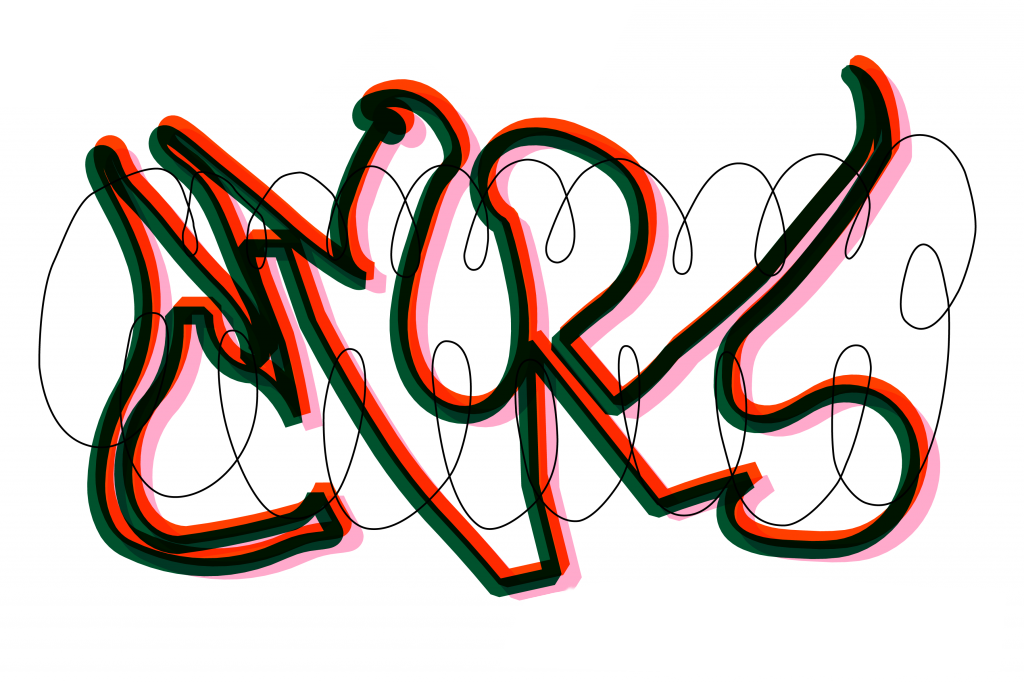
O.Lozuraitytė, P.Išora
J.Jonutytė, Y.Norton
graphic design:
A.Budvytytė
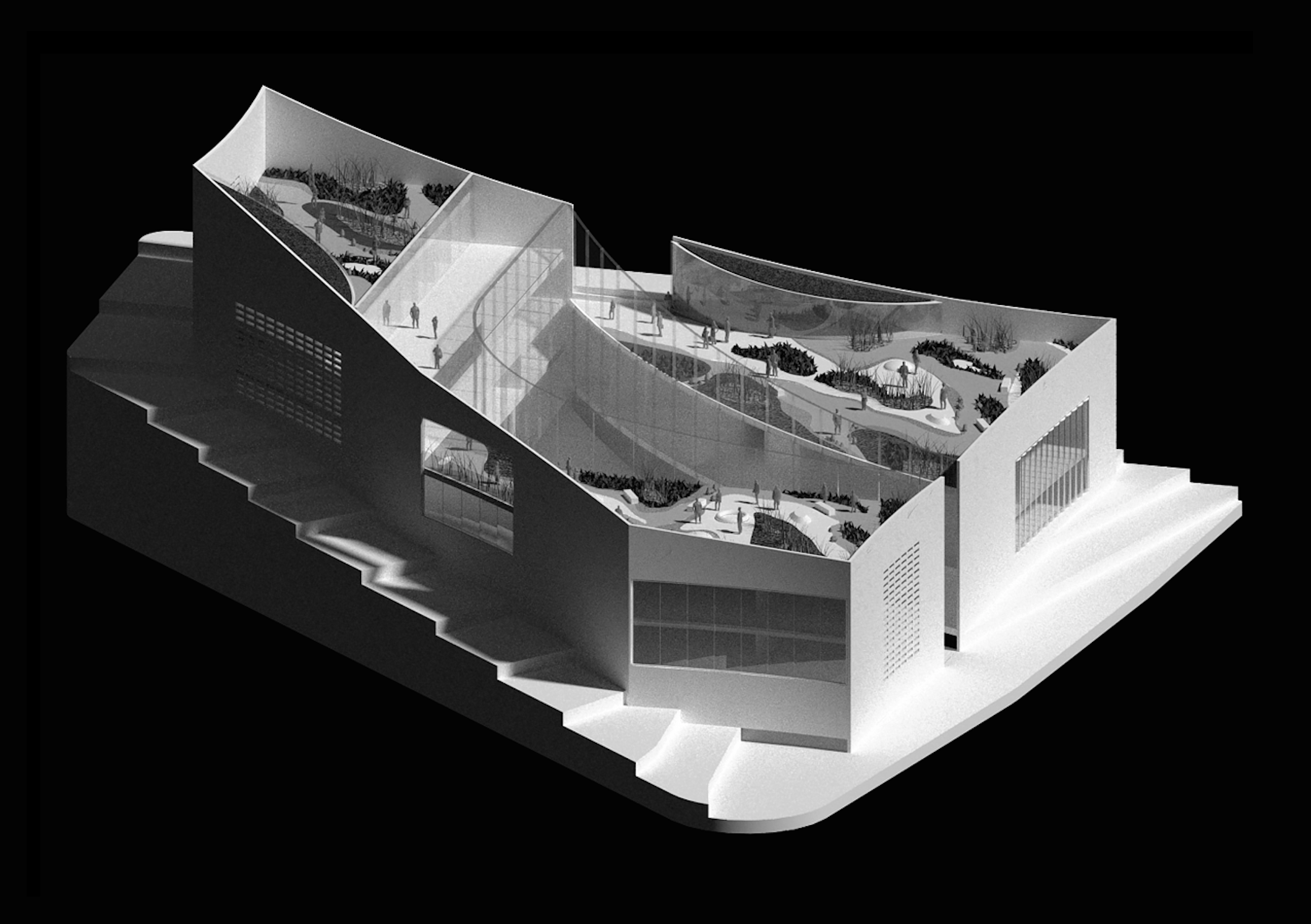
D.Daunys, P.Išora,
I.Ksnelashvili,
O.Lozuraitytė, D.Tsanava

P.Išora, O.Lozuraitytė
V.Petrušauskaitė-Kontvainė

O.Lozuraitytė
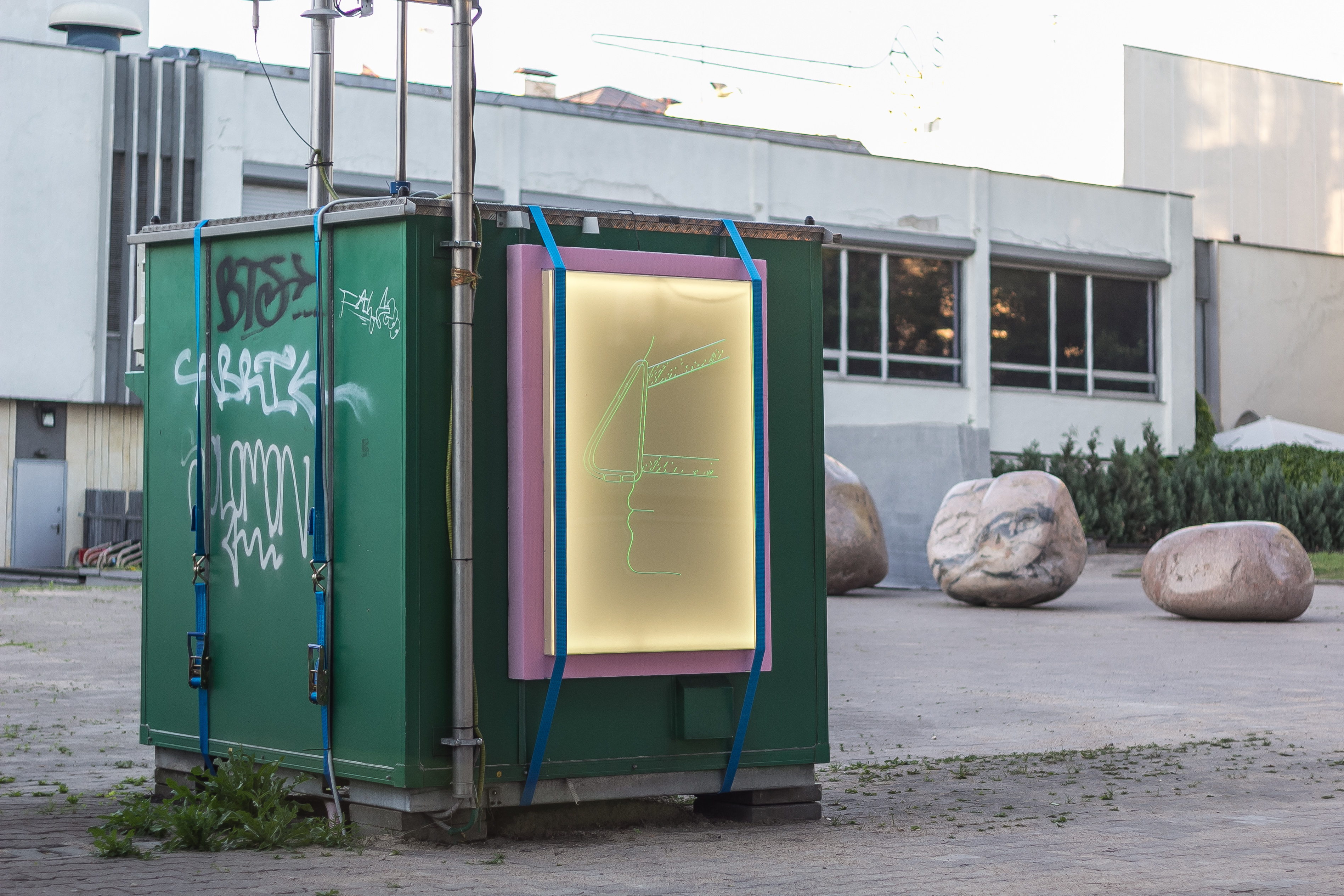
O.Lozuraitytė, P.Išora
N.Černiauskaitė

P.Išora, O.Lozuraitytė
coordinator: E.Juocevičiūtė
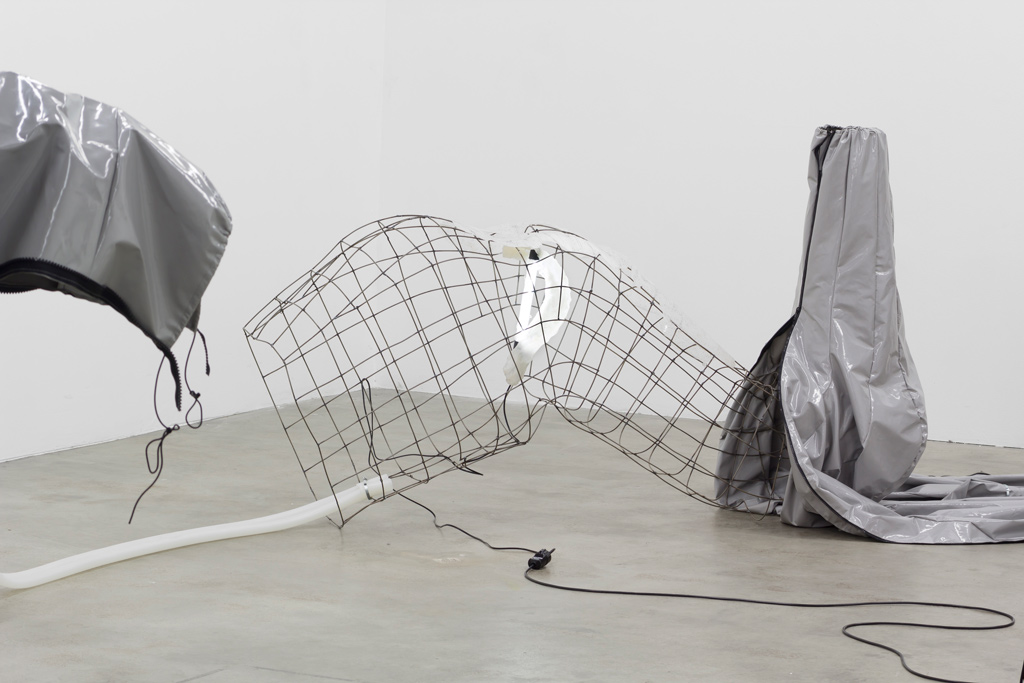
O.Lozuraitytė, P.Išora
N.Černiauskiatė

15th Venice Architecture Biennale
K.Bērziņš, J.Daubaraitė, P.Išora, O.Lozuraitytė,
N.Paegle, D.Smilga, J.Tali, L.Zariņa, J.Žukauskas

D.Daunys, P.Išora, I.Ksnelashvili, L.Lapinskas, O.Lozuraitytė, G.Šegždavičius, D.Tsanava
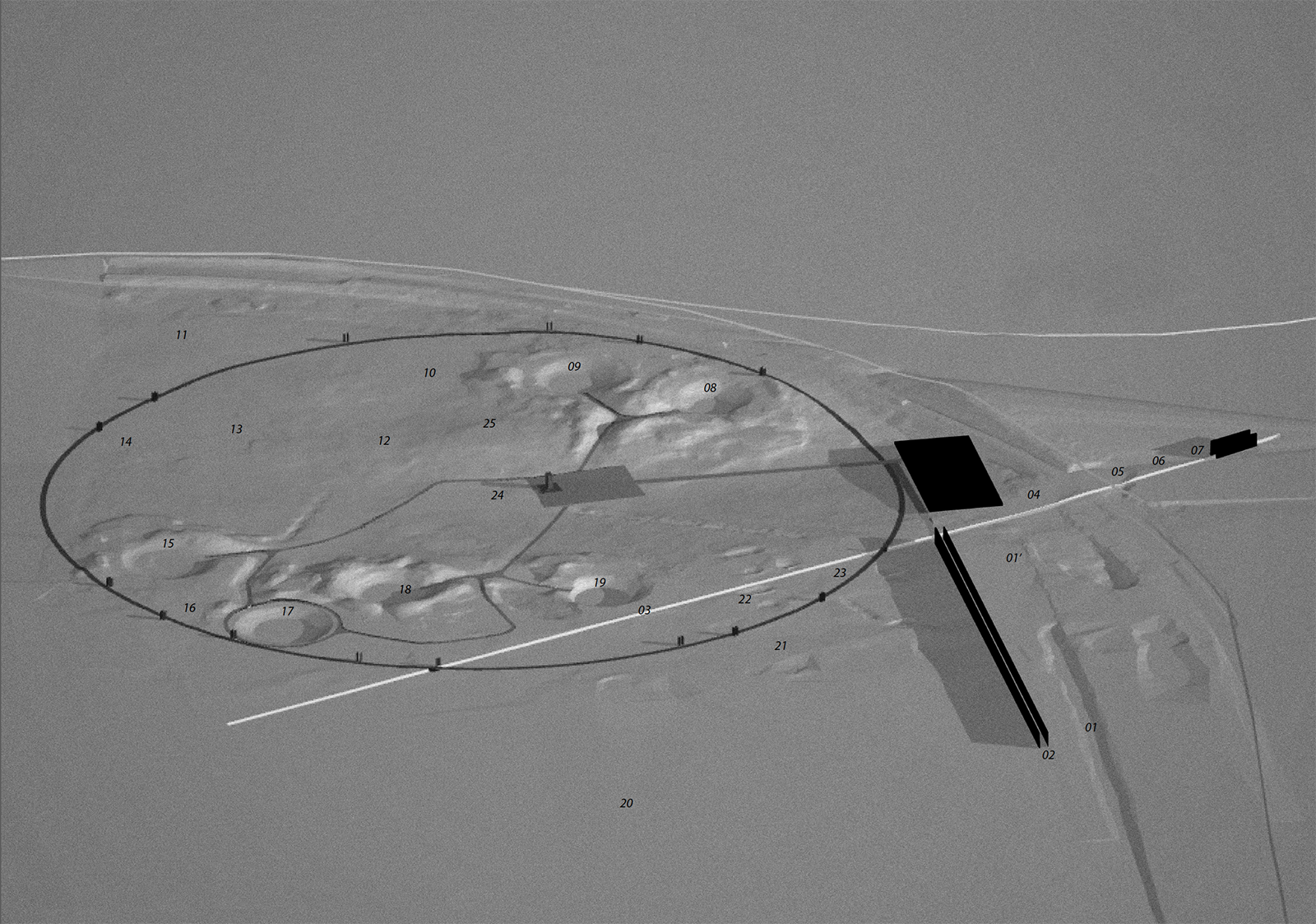
P.Išora, O.Lozuraitytė, L.Lapinskas
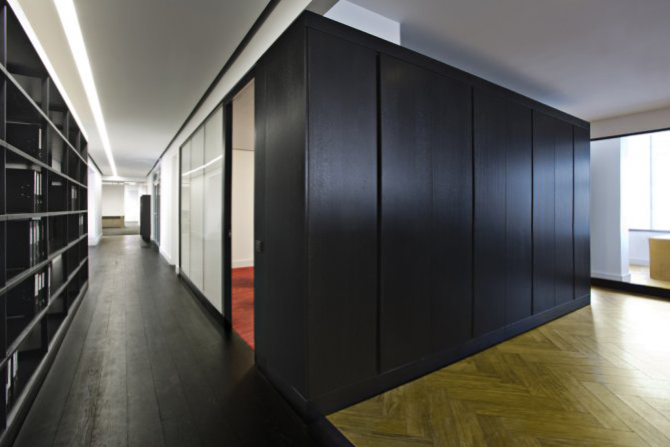
O.Lozuraitytė, L.Lapinskas

E.Franch I.Gilabert
spacial Concept:
O.Lozuraitytė

O.Lozuraitytė
